History
The beginnings of Ringier
1833 - 1911
1833
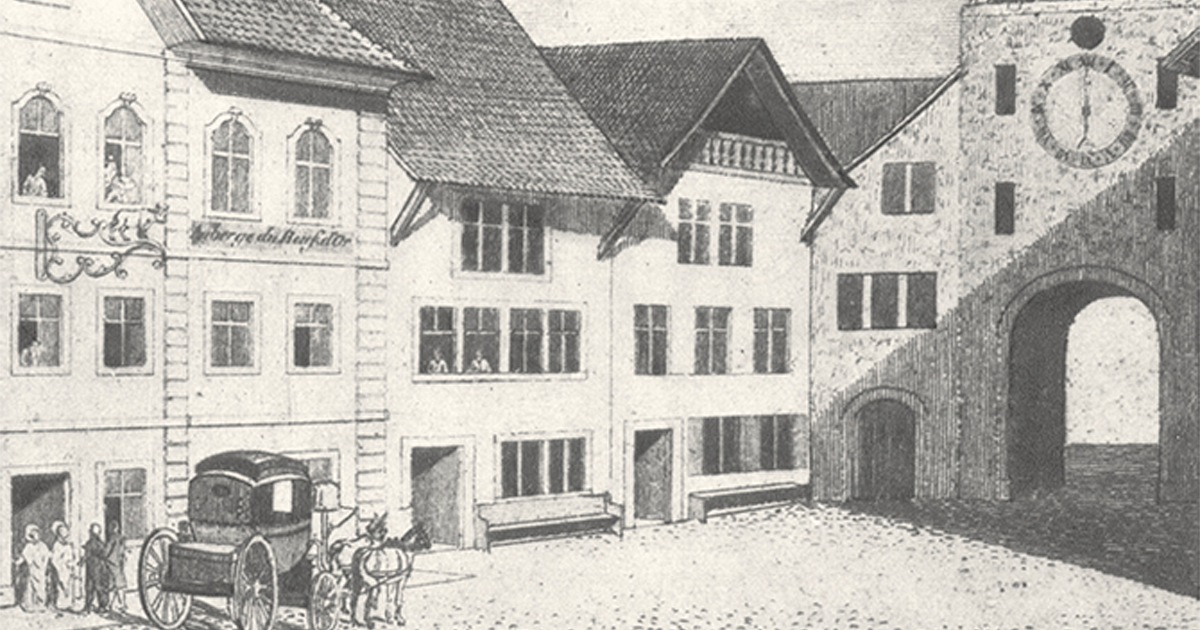
Start of the liaison between Ringier and the printing business
In 1833 pastor’s son Johann Rudolf Ringier bought a print shop in Zofingen. For the next 40 years, he primarily printed local gazettes, school syllabuses and speeches for public executions. Early publications included the Zofinger Wochenblatt, which was declared the city’s official gazette.
1874
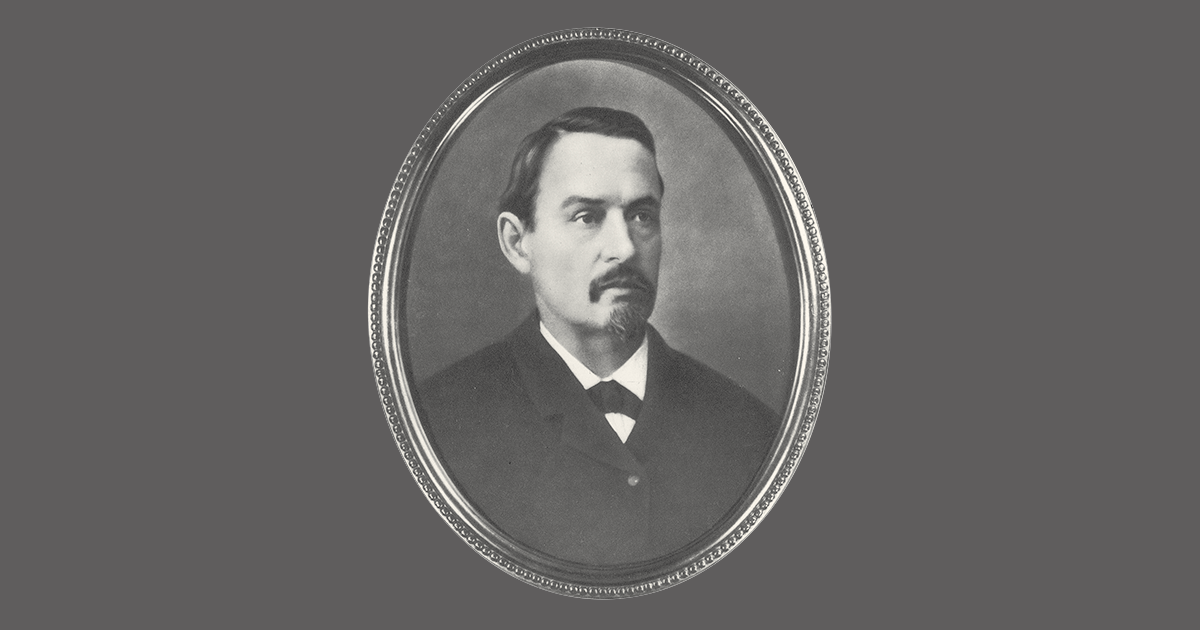
From the hand press to the rapid press
After the death of Johann Rudolf Ringier in 1874, his son Franz Emil took over control of the company. He invested the sum of 6,000 francs in a second-hand Johannisberg printing press – an absolute fortune at the time! The investment paid off: the company was soon printing commercial documents and musical scores.
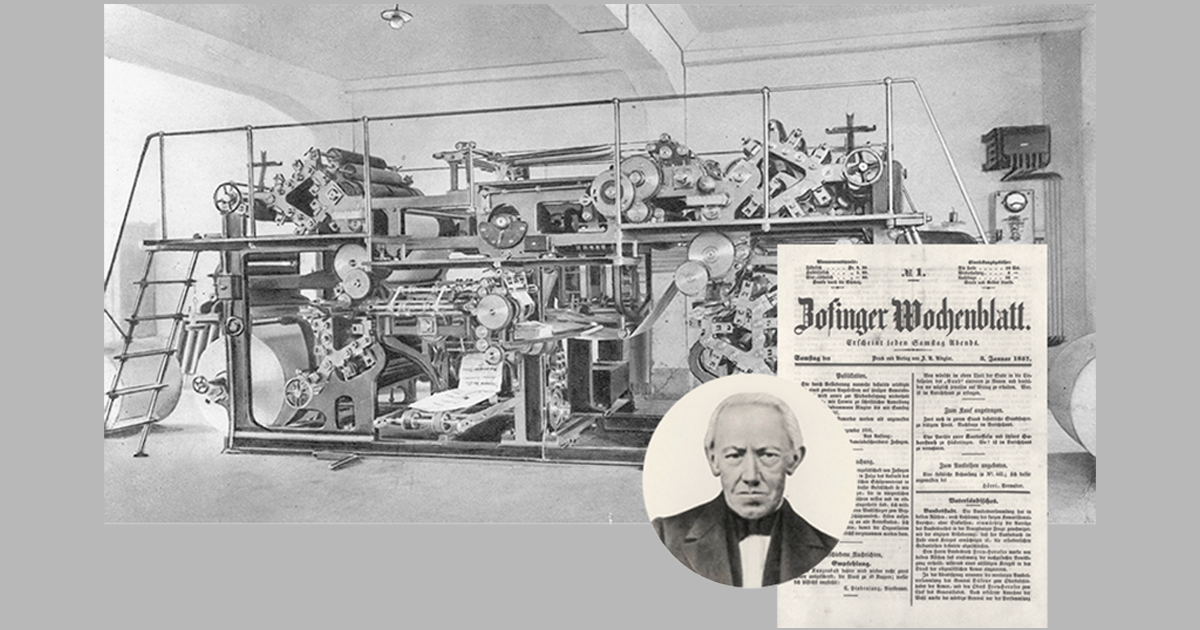
In 1885 Ringier gave up publication of the Zofinger Wochenblatt – in contrast to the competition, he was late to recognise the shift in readers’ tastes from advertising to news.
1898
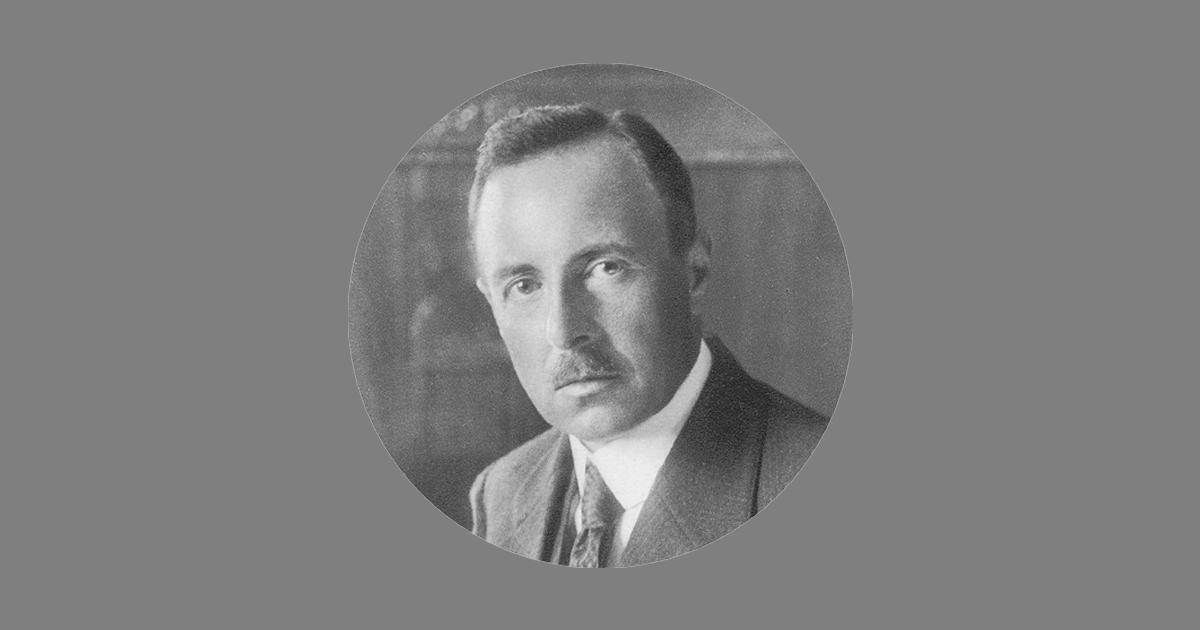
A youngster assumes the mantle of leadership
Full of optimism and drive, the 22-year-old Paul August Ringier took over the print shop, after the sudden death of his father, Franz Emil, from a heart attack. The print shop that his father left behind was technically strong, but weak as a publisher. Ringier began to work with August Francke, the largest competitor in the region.
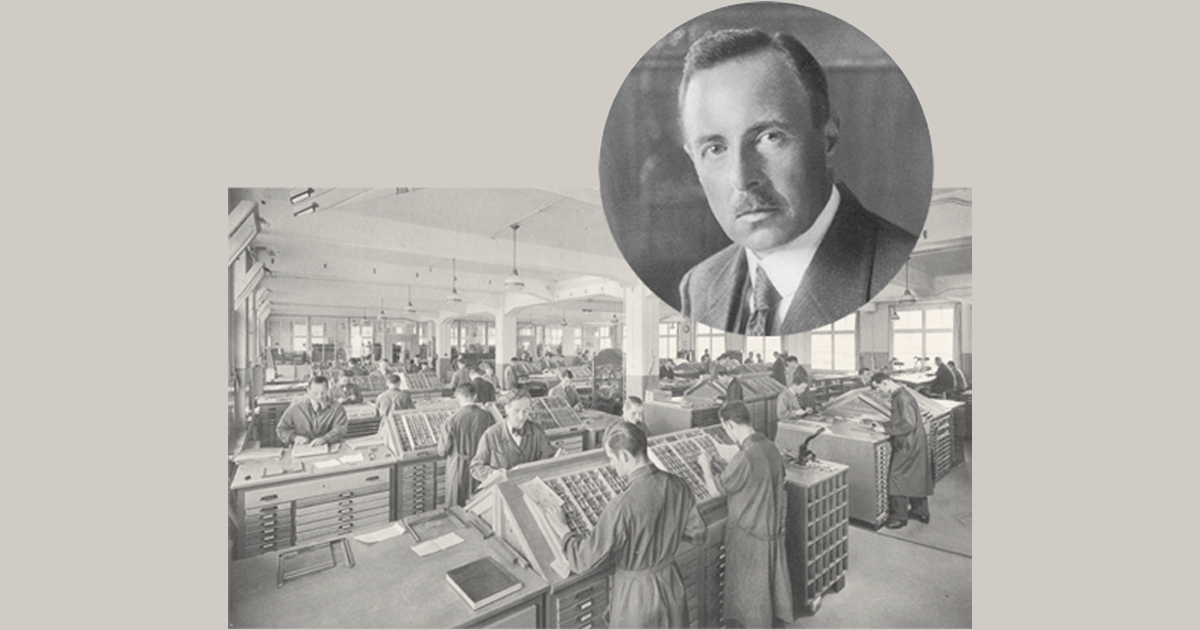
Two years later, Ringier had become influential across Switzerland
Clever transactions and risk-taking investments made Paul August Ringier a partner of the Schweizerische Allgemeine Volks-Zeitung in 1900. Its trademark was its light pink paper – a stroke of marketing genius: the newspaper was unmistakable.
1902
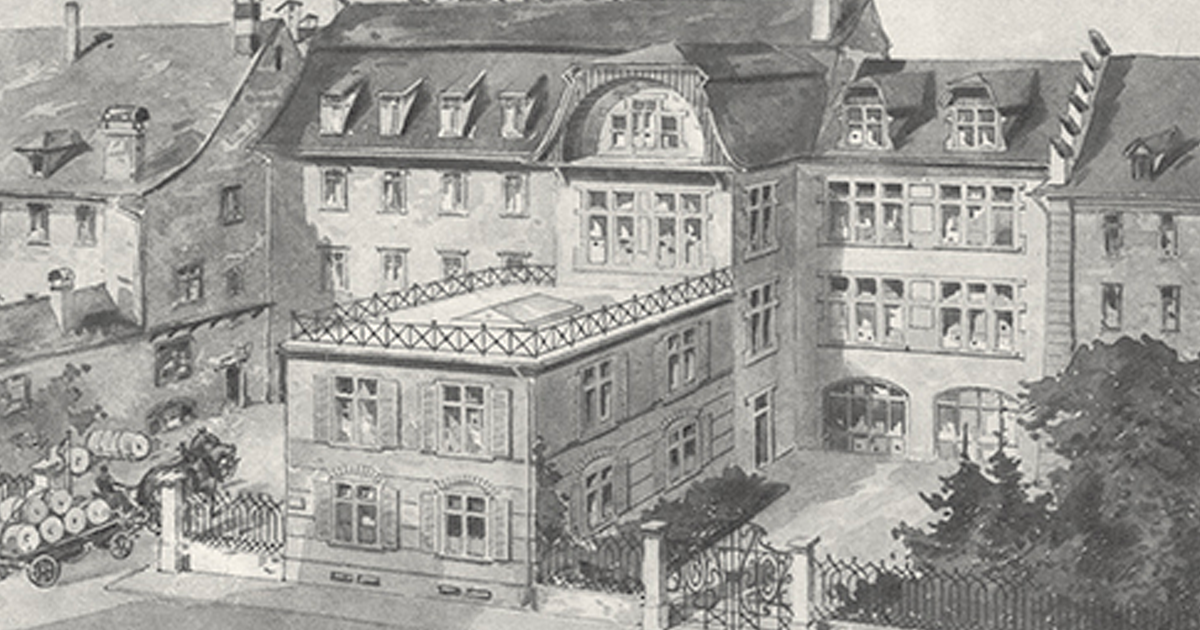
New location in Zofingen
In 1902, Ringier merged with the allied print shop, founded a new joint-stock company and moved to a new location in Zofingen. Just five years later, Paul August Ringier took over the entire printing operation, including the newspaper and considerably increasing its size.
1911
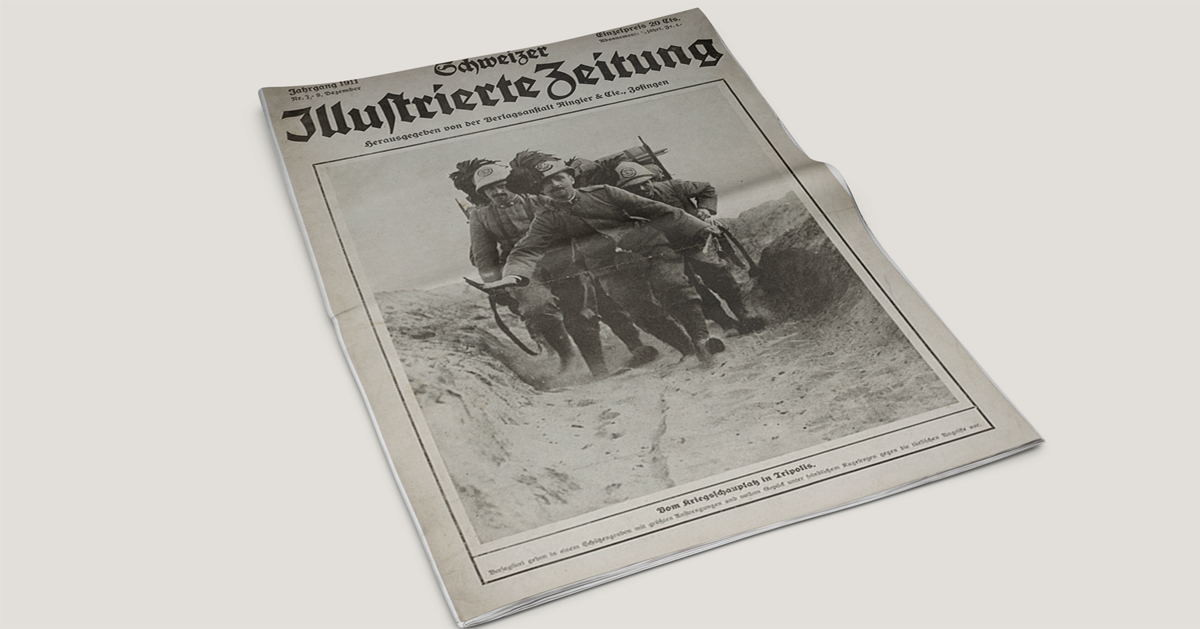
Schweizer Illustrierte was first published in 1911
With lots of pictures and high production values, the newspaper presented a mix of current event reportage and Swiss folklore and history that proved very popular with the public. The timing could not have been better. At the outbreak of WW1 in 1914, many German-speaking Swiss wanted nothing to do with the German illustrated magazines. Within a year, Schweizer Illustrierte’s readership had doubled to 43,000. At the same time, the company acquired the first rotogravure machine in Switzerland. It was a ground-breaking technical innovation for the industry, as it could print text and images in a single operation – and it was developed largely by Paul Ringier himself.
Ringier became the largest publishing house in Switzerland
1921 - 1969
1921
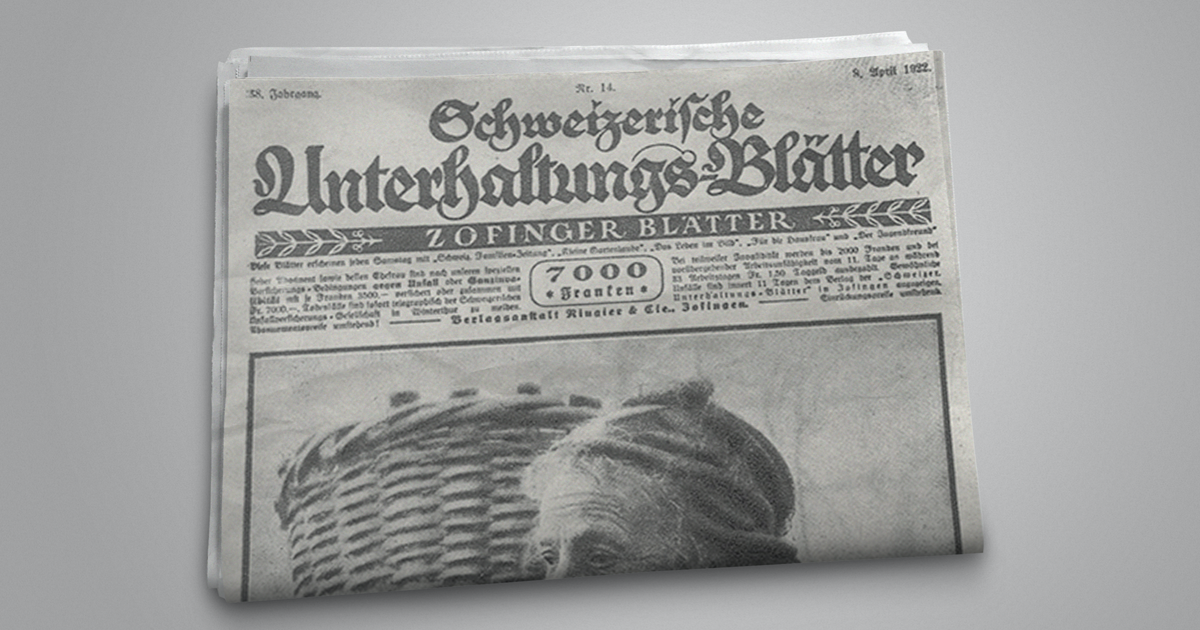
Entertainment for the masses
Ten years after the first issue of Schweizer Illustrierte, Ringier published its French-language counterpart L’illustré. This marked the beginning of Ringier’s activities in western Switzerland. A year later, in 1922, Ringiers Unterhaltungsblätter (RUB) made its first appearance. Also referred to as the ‘yellow booklet’ due to its colour, the publication offered the public short, strictly apolitical current events spiced up with short stories and novellas. For decades, RUB remained one of the largest and most stable publishing and financial successes for Ringier.
1950
The first journalistic guidelines at Ringier appeared in 1950
They were a type of code of professional ethics, of which parts are still found in the Ringier Code of Conduct today. The guidelines were written by the then editor-in-chief of Schweizer Illustrierte, Werner Meier.
1959
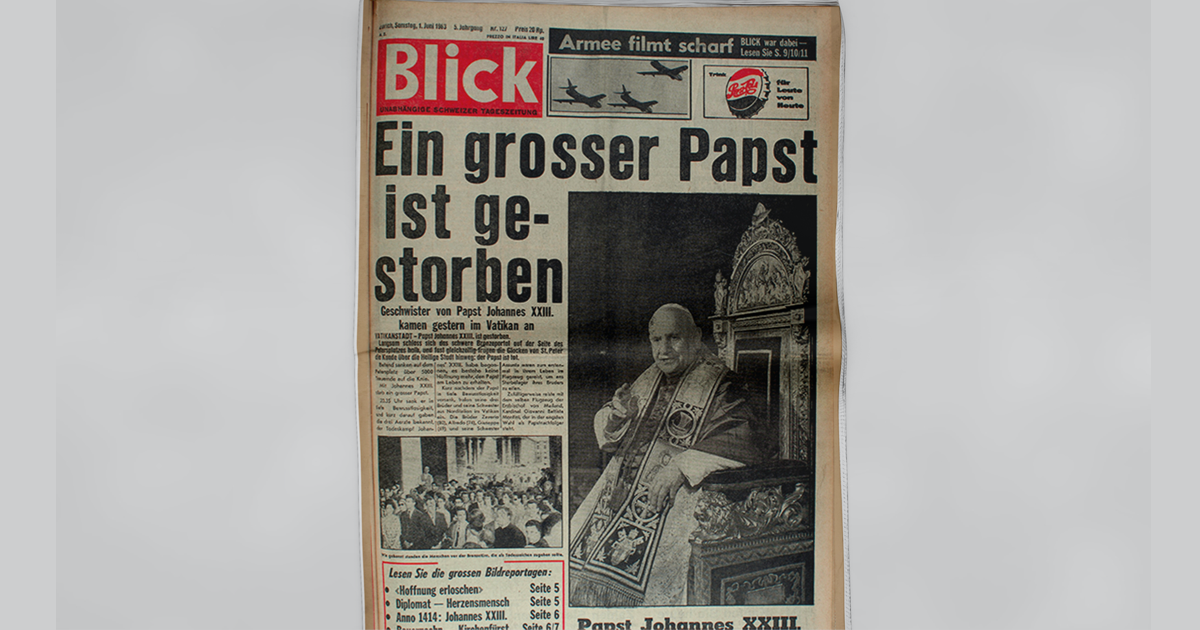
The arrival of an entertaining provocateur
Following the maxim that ‘you can do anything but be boring’, Blick made its first appearance in 1959. As the first tabloid in Switzerland, it told stories in a completely different way to any other Swiss newspaper at the time. The new newspaper brought in numerous innovations, with a telephone advice hotline called ‘der heisse Draht’ and a new, American-style editorial concept. The tabloid was produced in a newsroom system based in two three-room apartments on the edge of the Zurich banking district.
Due to a shortage of space, the photo lab was located in the bathroom.The première of Blick caused a stir: a mix of attention, approval and aggression swept the country. To parliamentary questions the Federal Council replied that, unfortunately, it could do nothing about this new type of newspaper – meanwhile, it secretly withdrew its large print orders for phone books from Ringier. The publishers’ association demanded that SBB prohibit the sale of Blick at railway station newsagents. But the people voiced their opinion at the newsagents themselves: just two years later Blick had a circulation of 97,727 and was the second largest newspaper in Switzerland.
1960
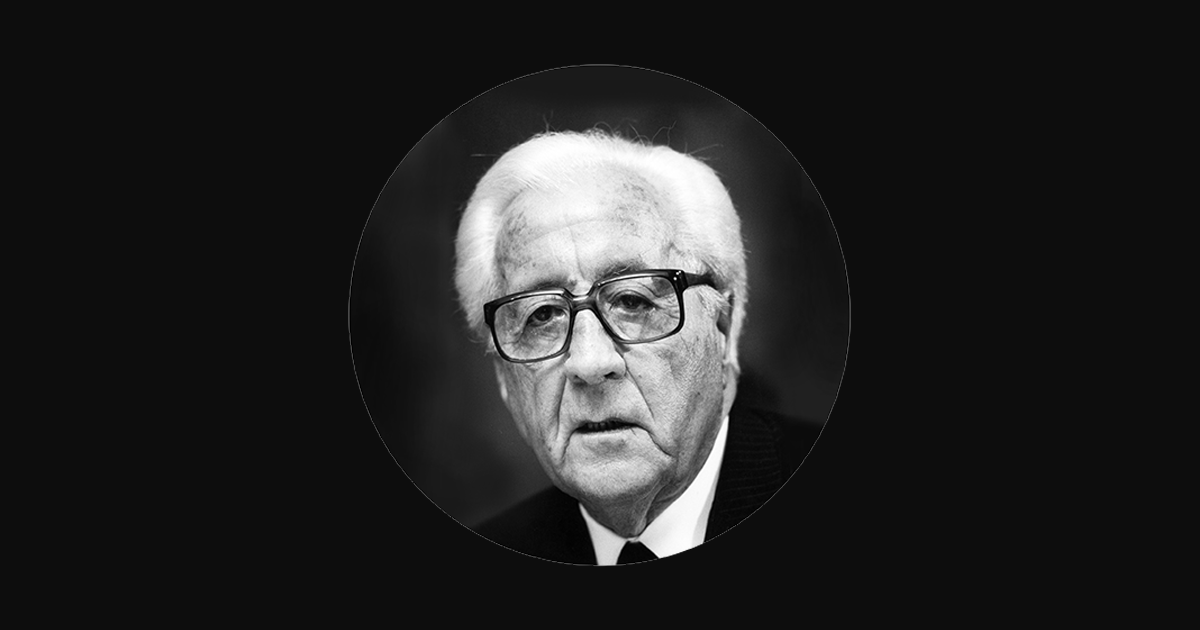
Hans Ringier became CEO in 1960
His father Paul August Ringier died at the age of 84. He had run the media company in a gruff, patriarchal manner – but very successfully. Over his 50 years as CEO, he had turned the regional printing company into a national media corporation. His son Hans took over the company and its now 2,000 employees.
1963
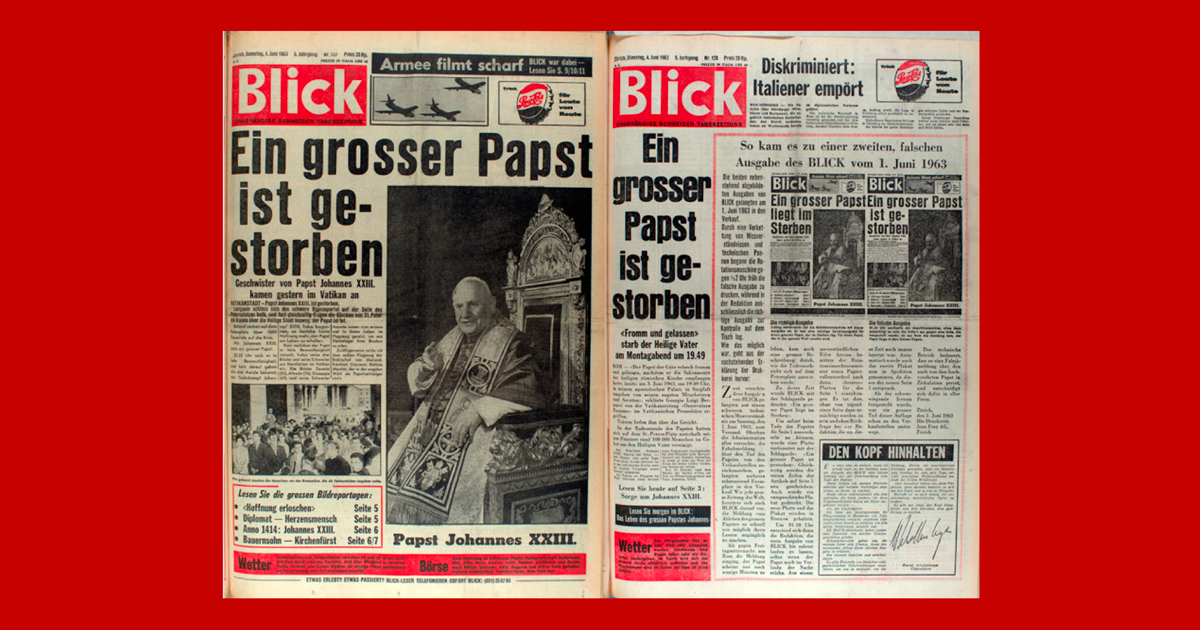
Blick kills the Pope
- on paper: To make sure that the death of the dying Pope XXIII is announced in time, the editorial team produces two print versions. But half of the newspapers are accidentally printed with the Pope's death announcement – even though he lives one day longer. A mishap that goes down in history.
1967
Ringier joined the video business in 1967
The small in-house film production facility known as Rincovision supplied the media company with film material and took on outside orders as well.
1969
SonntagsBlick was published for the first time in 1969,
becoming the first Sunday newspaper in Switzerland. Blick showed readers the hardships and cruelty in the world during the week; while readers of SonntagsBlick were treated to the amusing and enjoyable side of life.
Ringier’s transition to a modern media company had begun
1973 - 1986
1973
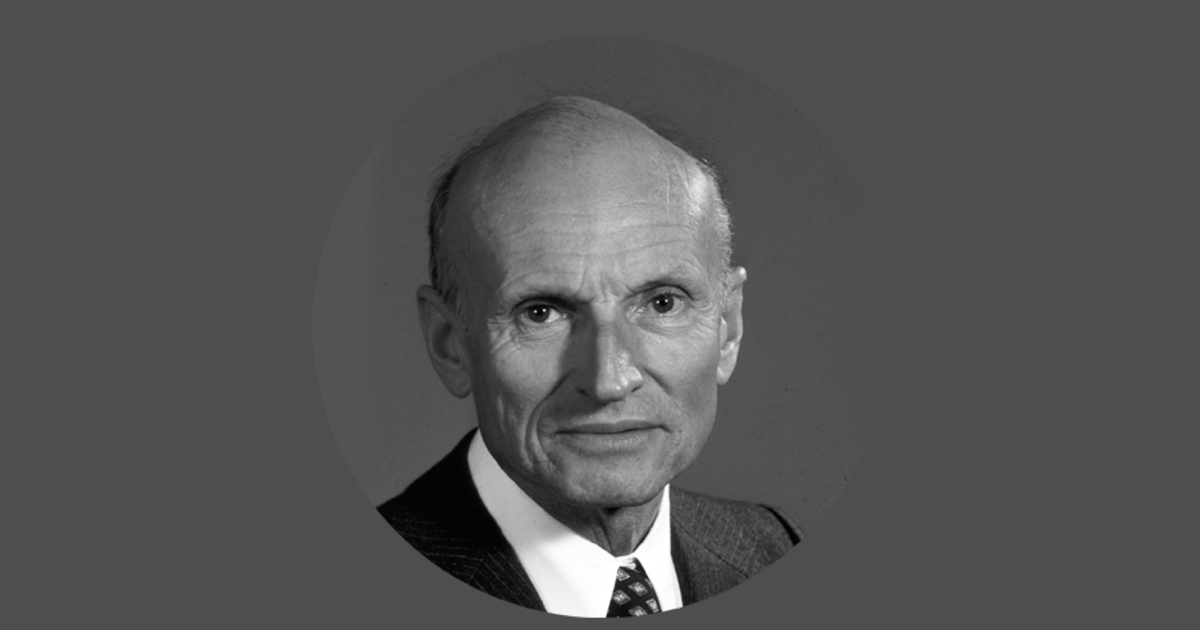
Ringier’s new partner
In 1973, the group acquired the Lucerne-based publishing house C.J. Bucher AG, which included the Luzerner Neuste Nachrichten (LNN) newspaper; some 20 years later it became the Neue Luzerner Zeitung. In addition to technical achievements, important personnel changes also took place: Hans Ringier parted ways with Heinrich Brunner and named Dr. Heinrich Oswald as a delegate to the Board of Directors and president of the Ringier Group.
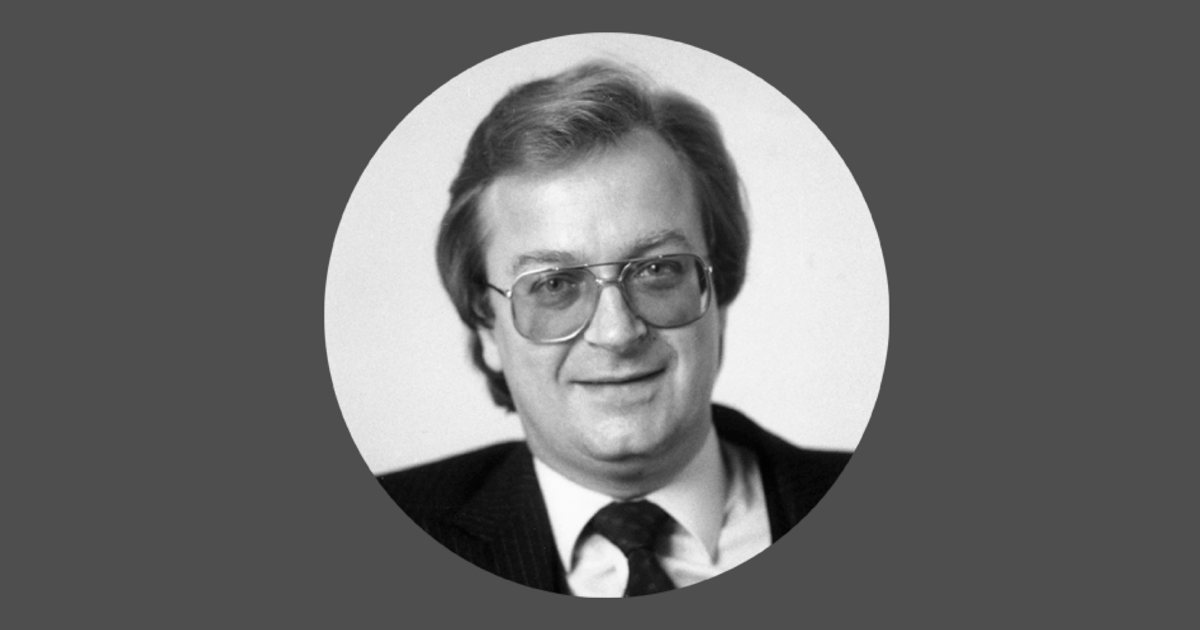
Frank A. Meyer joined Schweizer Illustrierte as a parliamentary correspondent. Over the years, he came to be one of the most important journalists in the company and is still active as a consultant to the executive management and as the president of the Foundation Council.
1974
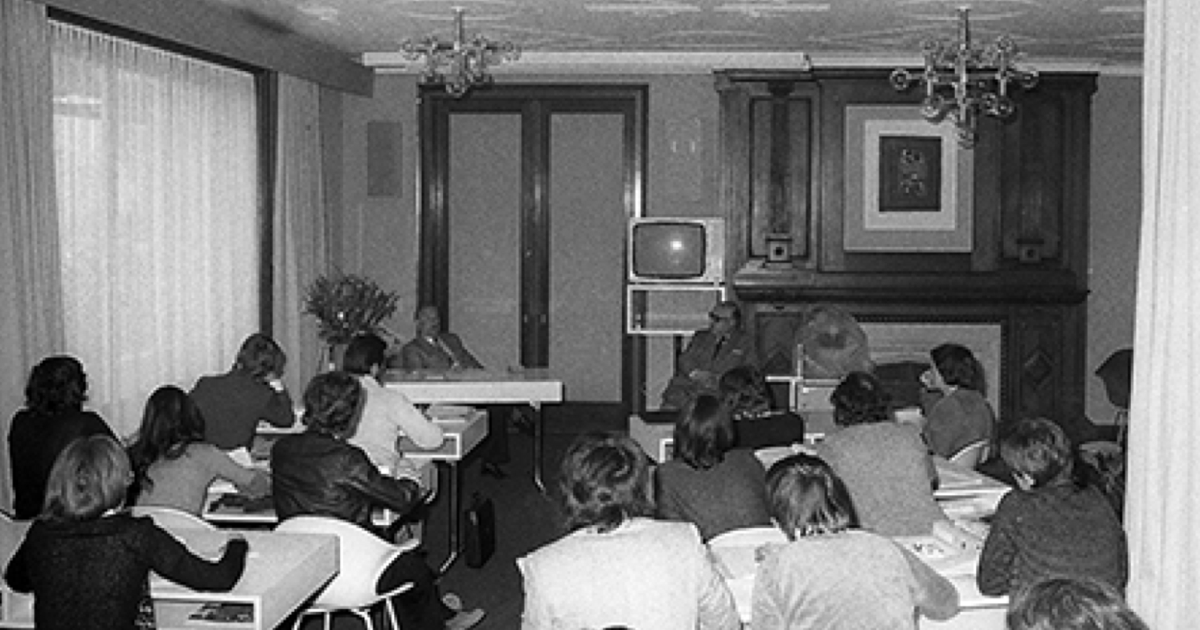
The first Swiss school of journalism opened its doors in 1974
Villa Römerhalde in Zofingen, once the residence of Paul Ringier, was converted into a schoolhouse. With the school, colloquially known as the Jouschu, Ringier wanted to make a contribution to the quality of journalism and offered a small, select group of students a mix of classroom learning and practical journalistic work in the editorial office. Even today, the Ringier School of Journalism remains the only private institution for journalist training and was attended by major media figures, such as Michael Ringier, Marc Walder and many more.
1977
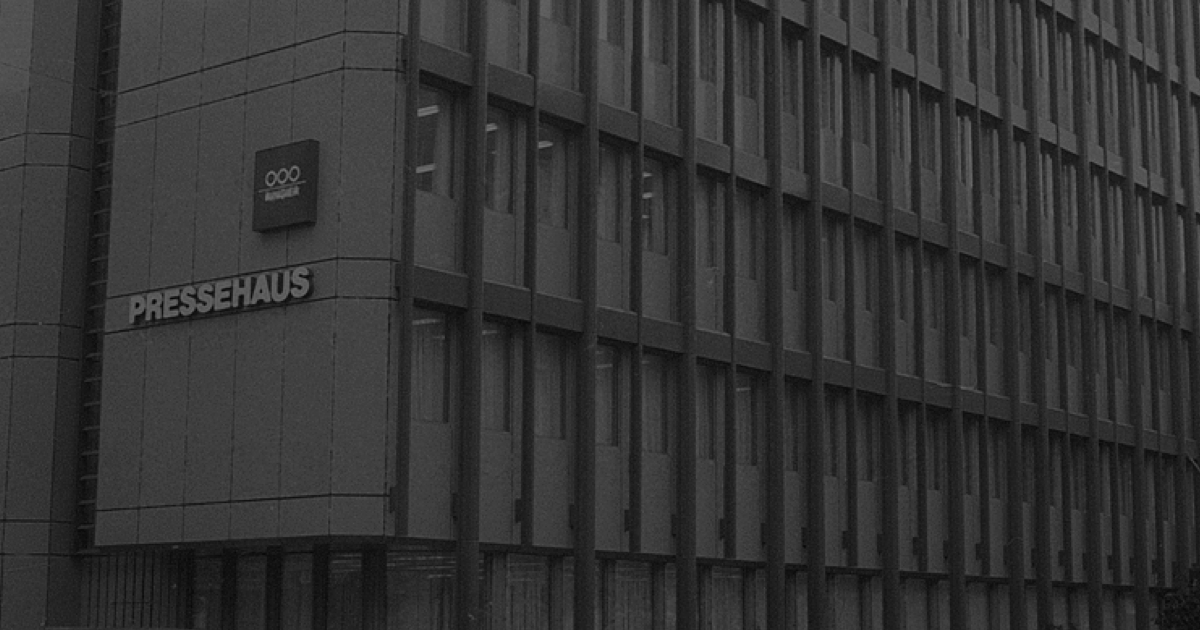
Renaming and relocation on the agenda
In 1977, the former Schweizerische Allgemeine Volks-Zeitung (SAVZ) received a new name and a new structure. The oldest title in the Ringier line-up now shifted its focus to celebrities, entertainment and advice. At the same time, Ringier opened a modern printing center for offset newspaper production in Adligenswil – Blick was finally printed on its own machines. A year later, the newly built Pressehaus at Dufourstrasse 23, Zurich, was opened. The Pressehaus was located at the heart of the publishing and communications sector in the center of an increasingly dynamic Zurich.
1982
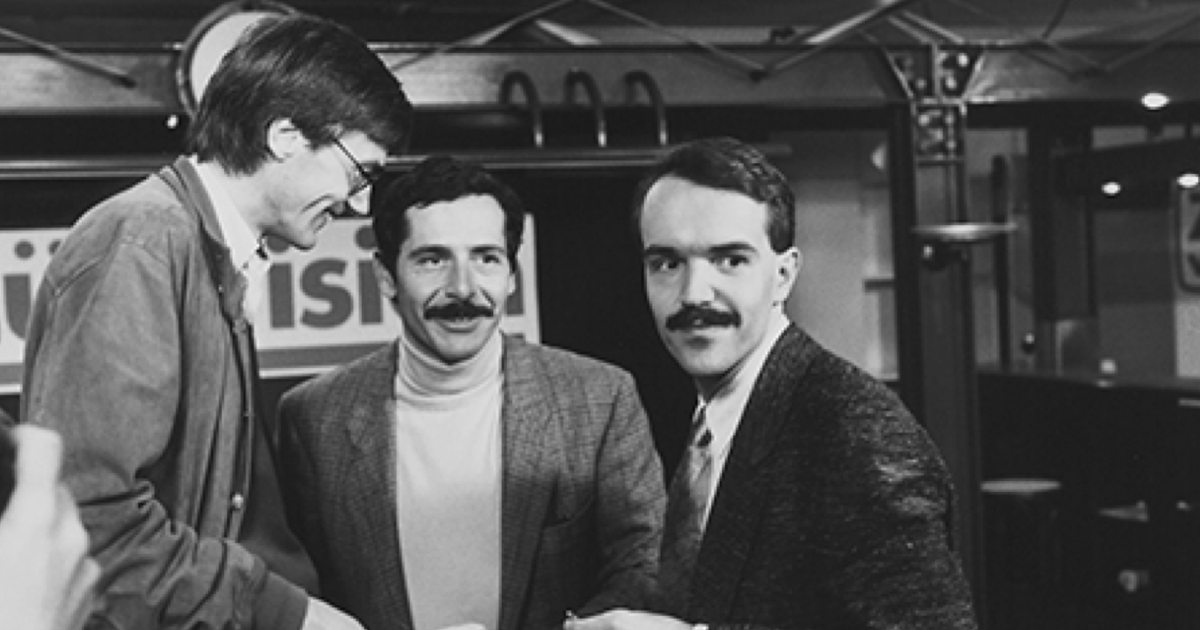
The beginnings of cross-media entertainment
In 1982, Ringier acquired a majority interest in the Good News concert agency. Activities beyond the borders of the publishing industry were a great success. Good News quickly developed into the leading provider in the burgeoning concert and festival business. Nevertheless, group president Dr. Heinrich Oswald stepped down due to old age in 1983 and was succeeded by Dr. Peter Schneeberger.
1984
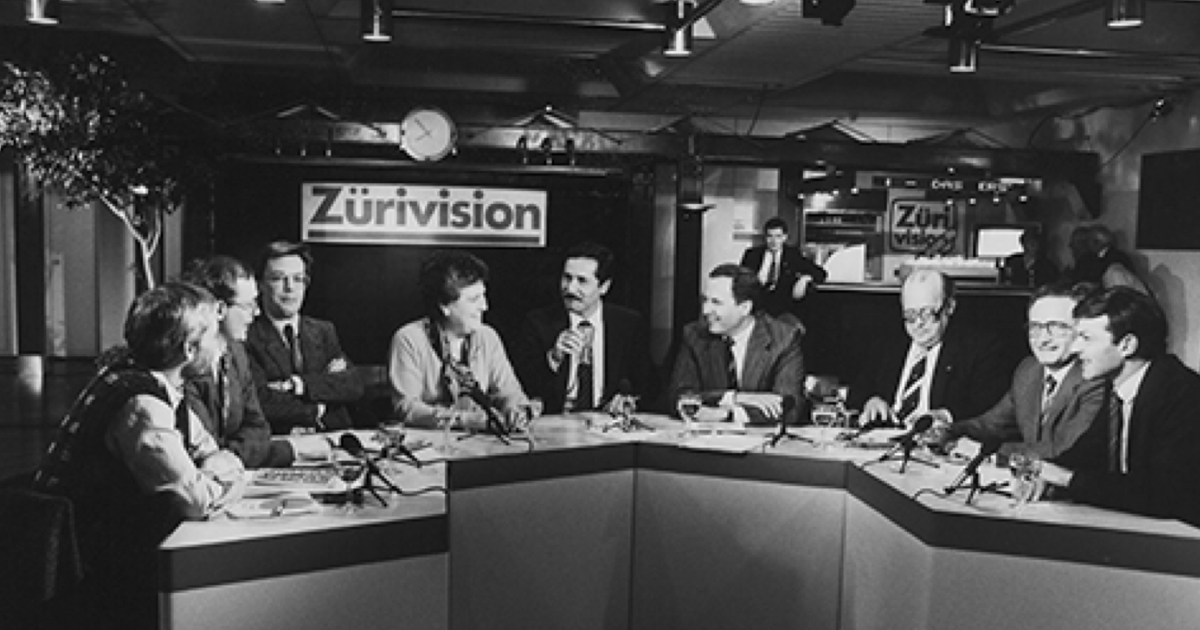
In 1984 Ringier was operating one of the most successful video production companies in Switzerland
The new TV programme management company Zürivision was formed in collaboration with the in-house film production company Rincovision, and later operated under the name Ringier TV.
1985
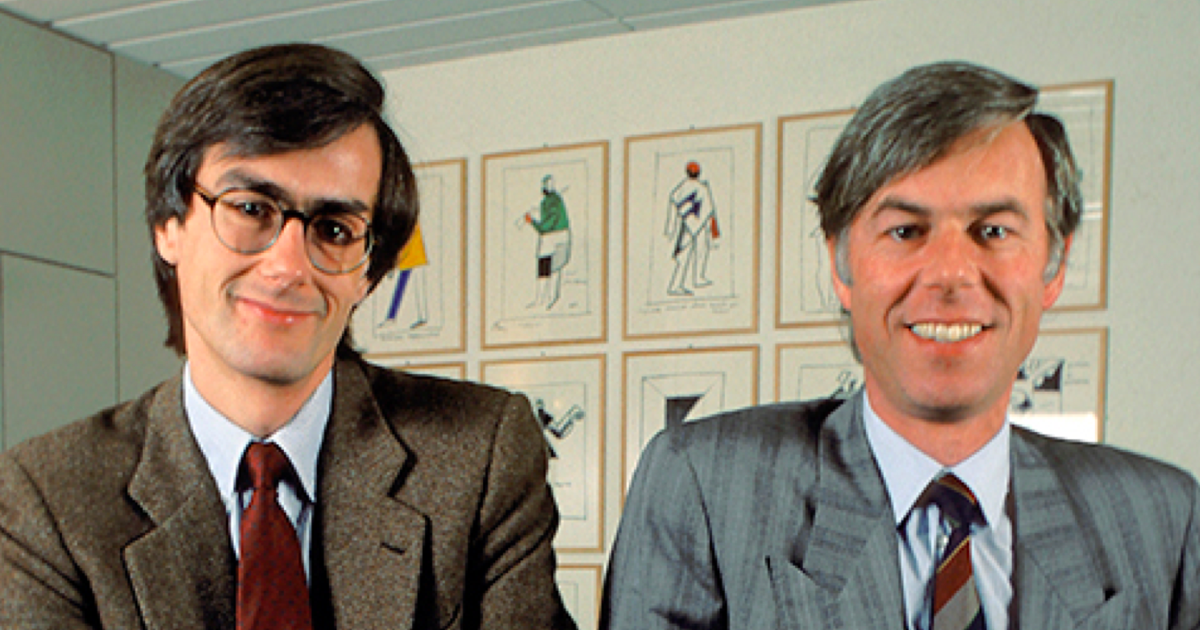
A New Generation
Hans Ringier hands over management responsibility to his sons Christoph (Chairman of the Board of Directors) and Michael (Chief Executive Officer), Dr. Peter Schneeberger steps down.
1986
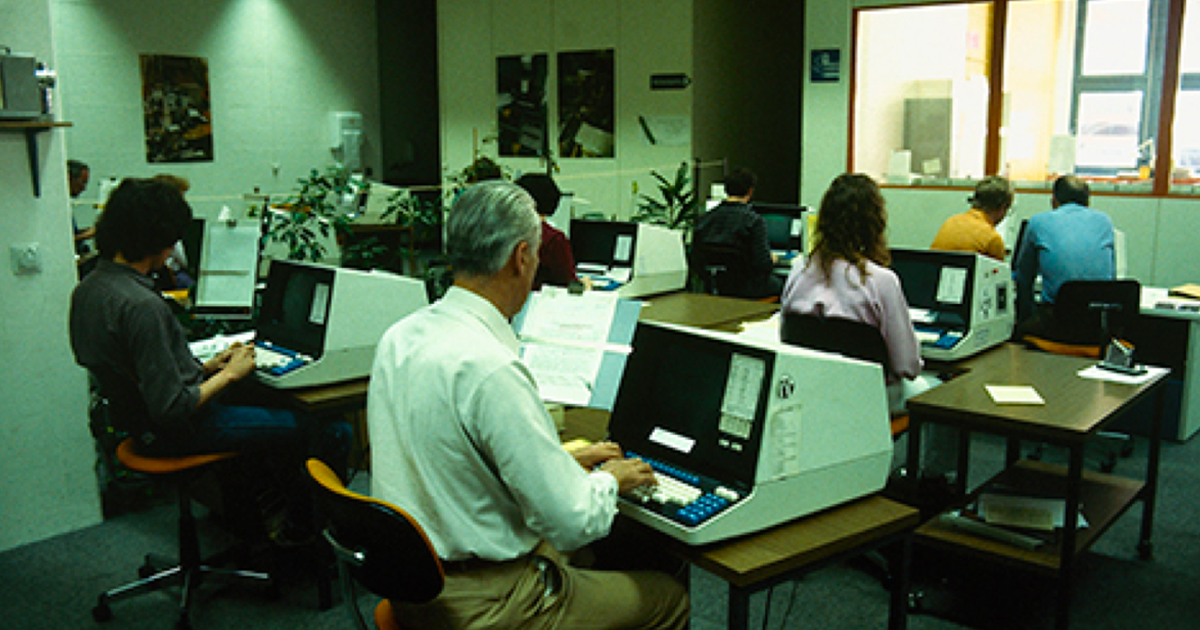
Revolution in image processing
Electronic image processing in Adligenswil goes into operation. A technical sensation: complete newspaper pages are transmitted via satellite for the first time in Switzerland.
New markets and new media
1987 - 2000
1987
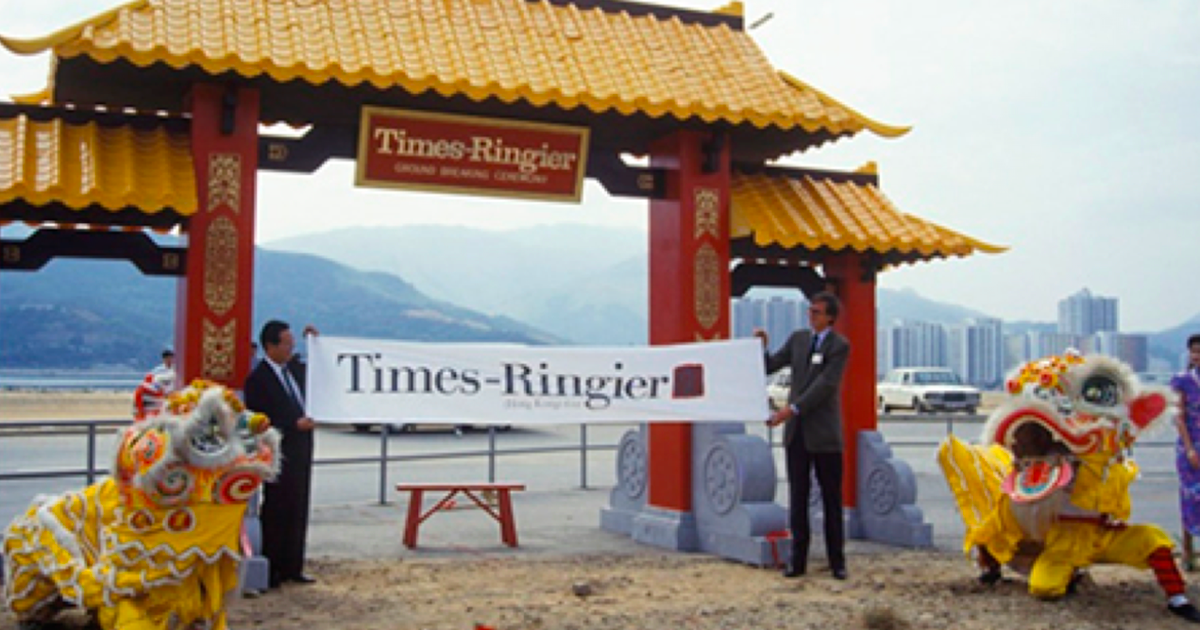
Initial steps towards Asia
A new print shop in Hong Kong, Times-Ringier (HK) Ltd., was formed in cooperation with Times Publishing Co. of Singapore. The company quickly advanced to become one of the major players in magazine printing. Ringier sold the company 24 years later to Hong Kong Economic Times Holding Ltd.
1989
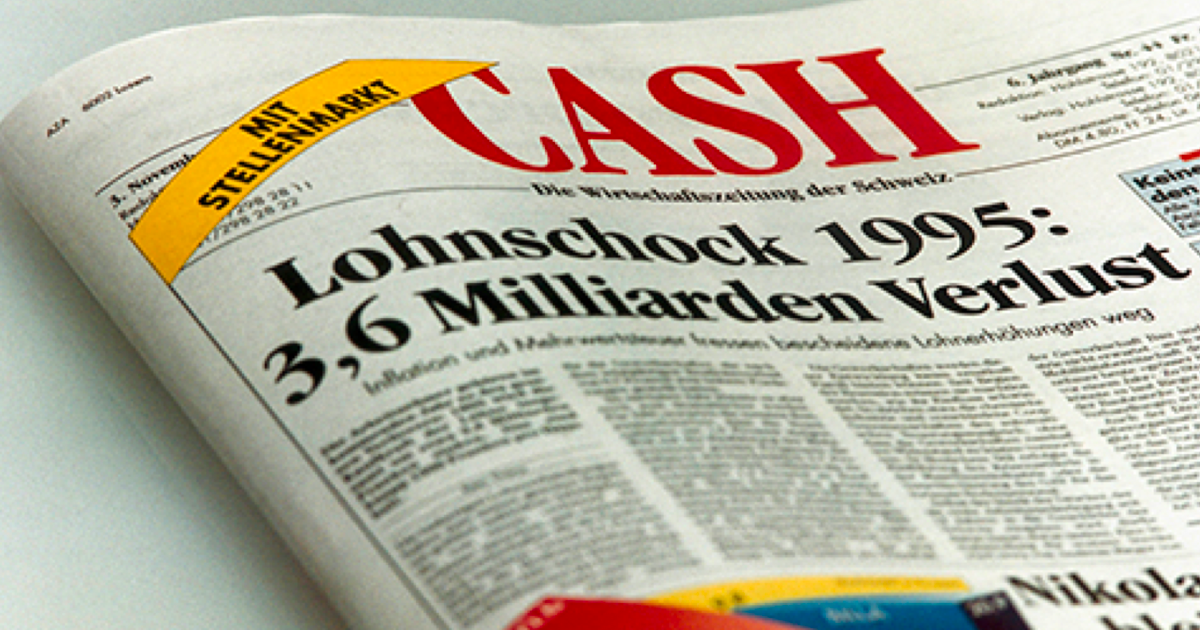
A new magazine revolutionised business media in 1989
Michael Ringier became chairman of the Board of Directors, thus assuming ultimate responsibility for the company. After a year on the group executive board, his brother Christoph Ringier resigned from the company. In Switzerland, Ringier worked with Swiss television and until 2012 produced the programmes Cash-TV, Spotlights, MotorShow and Gesundheit Sprechstunde under the Presse-TV label.
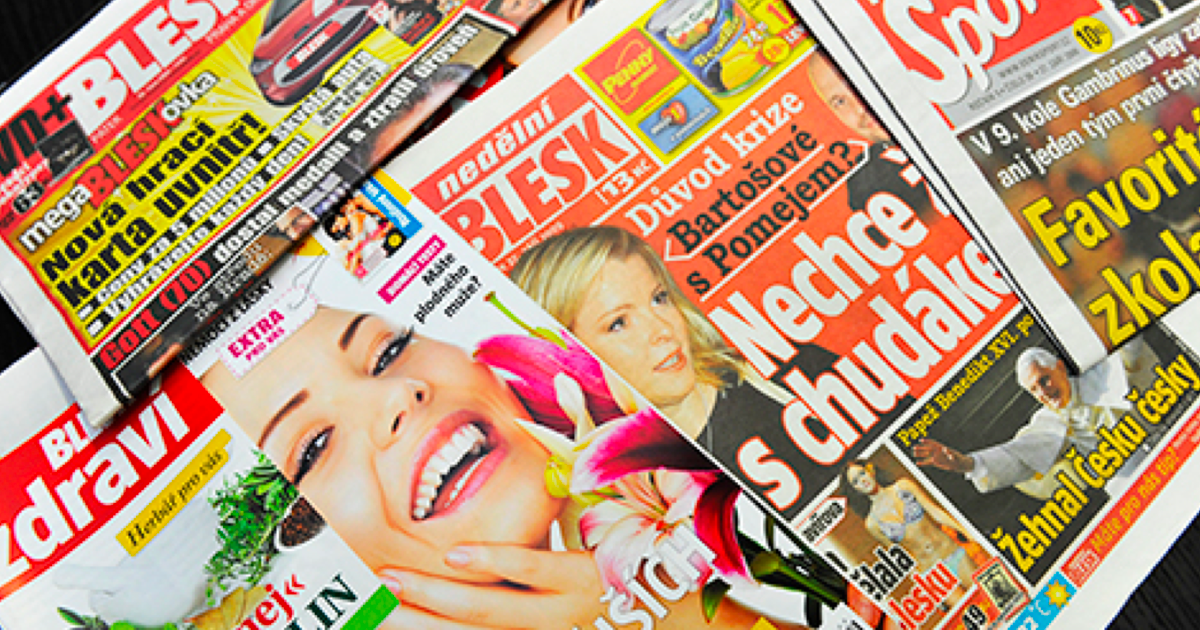
Cash proved to be a surprise hit: the newspaper combined business and finance reporting with stories about the personalities involved. After a year, Ringier launched the newspaper abroad. While the most modern newspaper print plant in Europe was being inaugurated for Ringier in Adligenswil, the same publishing house was producing the first publication of the Czech version of Cash, called Profit, in the Czech Republic. This was to be just the beginning of a major phase of expansion into central and Eastern Europe.
1991
A new newspaper in Lausanne
In 1991, three heavyweights of the Swiss press, Edipresse (at the time the publisher of almost all press publications in western Switzerland, including 24 heures, Le Matin and Tribune de Genève), Ringier and Publicitas joined forces to bring out the quality newspaper Le Nouveau Quotidien in Lausanne. The editor-in-chief was Jacques Pilet.
1995
In 1995 Ringier joined the chefs
The cult cooking brand Betty Bossi was acquired by the publishing house and successfully marketed in China – as it still is today – under the name Betty’s Kitchen. The Swiss brand was sold to Coop in 2012.
1996
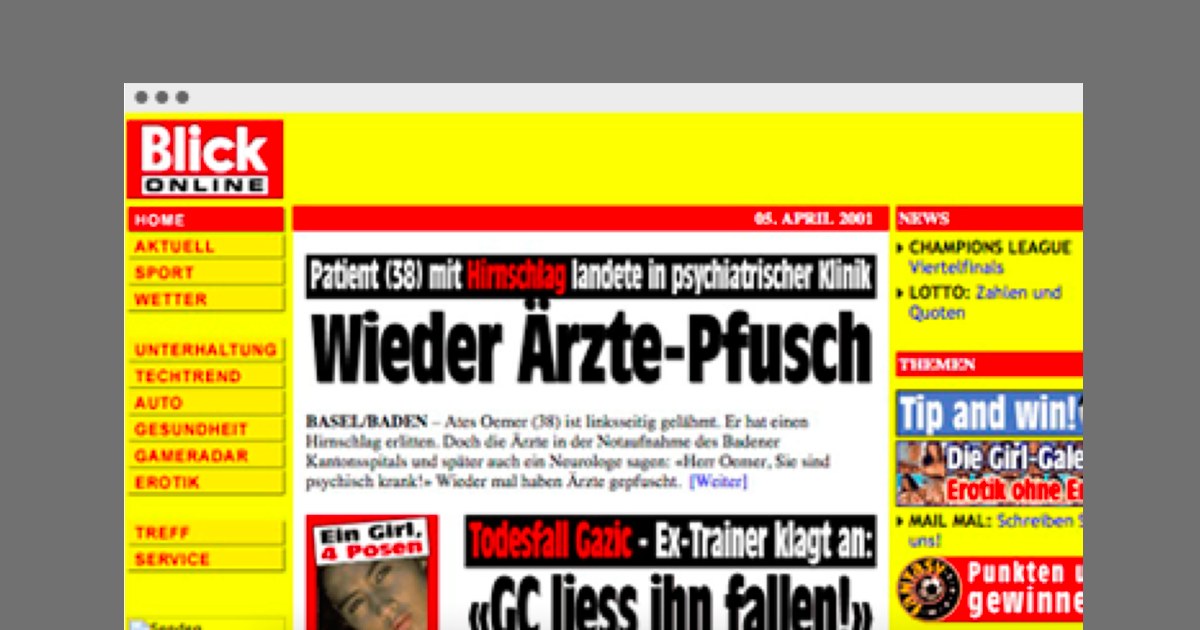
The first websites went online in 1996
With Blick online and Cash online, Ringier made its first forays on to the internet.
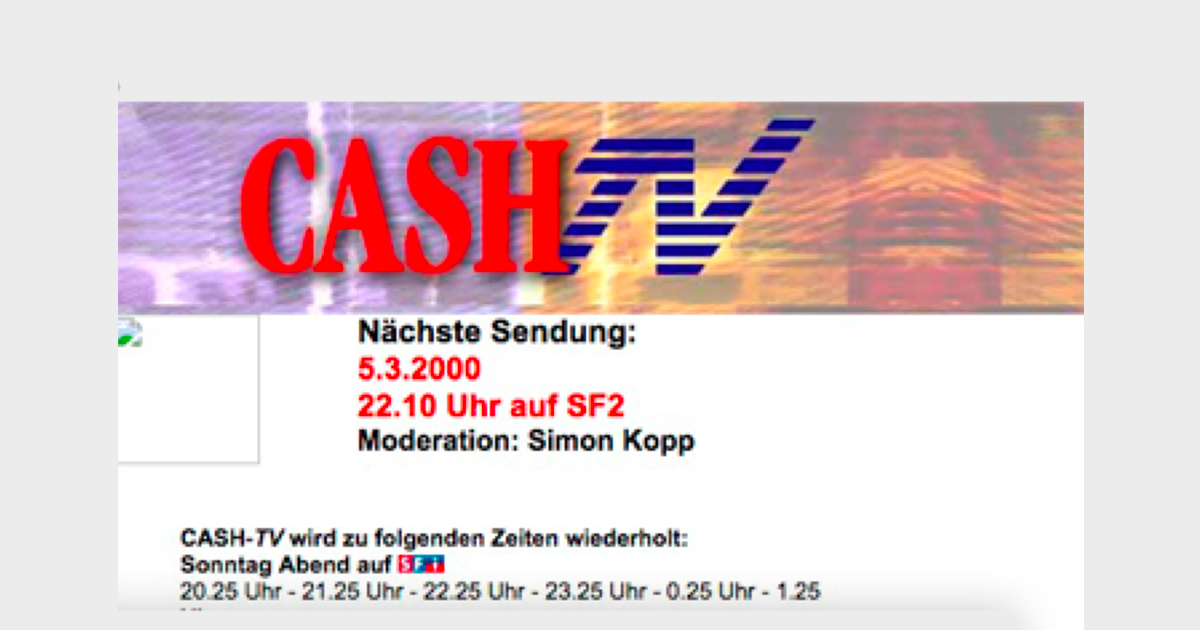
At the same time, the first company website went live. Fresh life was also breathed into the Schweizerischen Mediendatenbank (Swiss media database), which was expanded in cooperation with Tamedia and SRG.
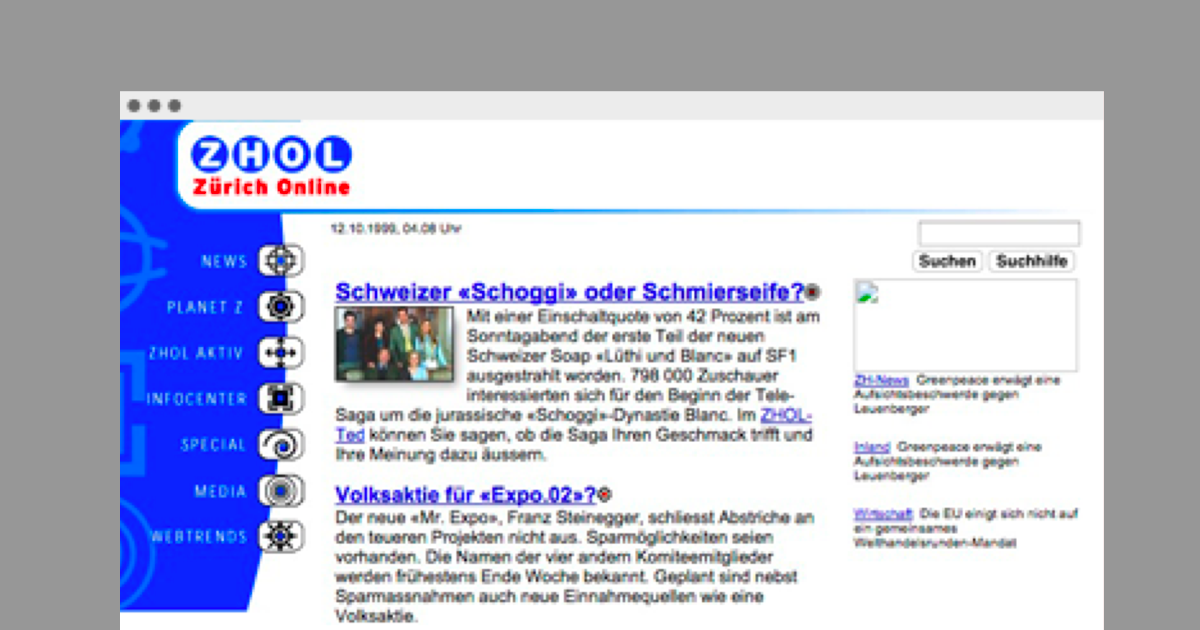
Meanwhile, Michael Ringier introduced a new group structure and took over as the group head of operations and later journalism, as well as becoming a delegate to the Board of Directors. A year later, Ringier Print Adligenswil and Zofingen were spun off as independent companies.
1998
Founding of Le Temps
The publishers of the financially stricken Journal de Genève and the similarly financially troubled Le Nouveau Quotidien entered into negotiations and agreed to merge the two papers to form a new newspaper called Le Temps. ER Publishing held 89.4% of the new company; ER in turn was owned jointly by Edipresse and Ringier, which both had a 50% share. Geneva-based banker Claude Demole, a major player in the publishing sector, held 6.1%; Société des Rédacteurs et du Personnel du Monde 2.4% and the Société éditrice du Monde 21%. Demole later sold 3.1 % to ER Publishing.
2000
In 2000, Hungary joined the Ringier ranks
Ringier acquired the Hungarian publishing house Magyar Hirlap Rt. from Marquard Media, becoming publisher of the second-largest Hungarian tabloid and the broadsheet Magyar Hirlap, as well as the proud owner of a print shop.
Ringier today – international, multimedia-savvy, diversified
2003 - 2019
2003

In 2003, Hans Ringier died aged 97
His son, Michael Ringier, succeeded him as chairman of the Board of Directors of Ringier Holding AG; Martin Werfeli took over as CEO of the Ringier Group. The women’s magazines Bolero and Edelweiss also joined the company’s portfolio.
2004
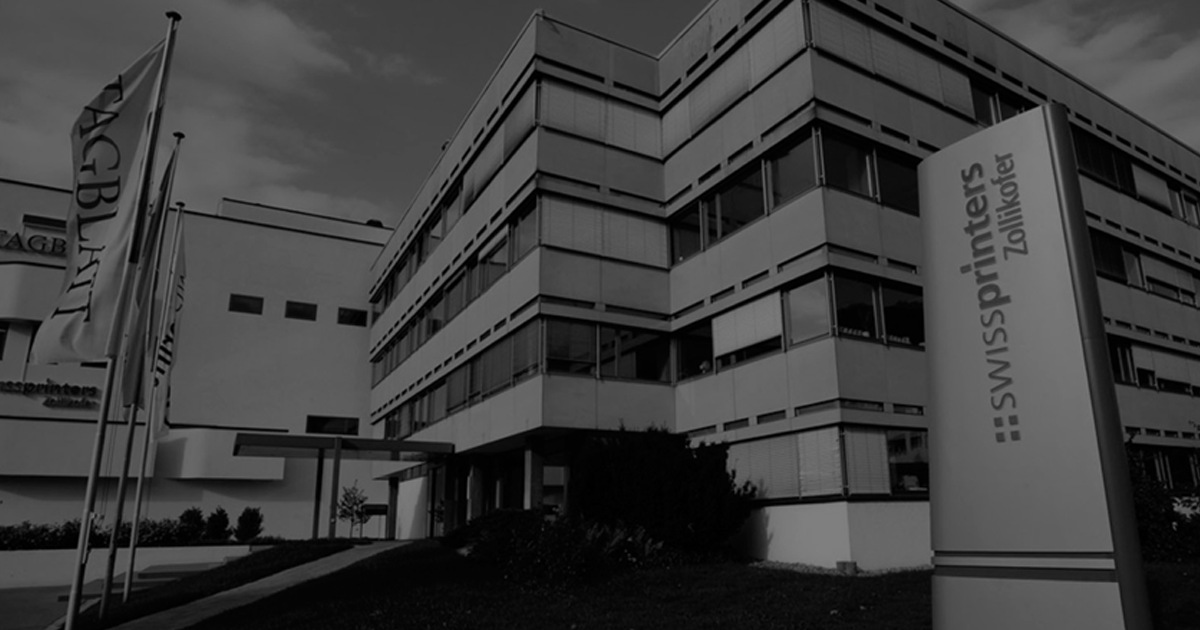
Swissprinters made its début in 2004
The group of companies comprised all non-newspaper printing operations of the two partners of NZZ Group, Edipresse and Ringier. In Germany, meanwhile, Ringier launched Cicero, a glossy magazine for political culture. The German art magazine Monopol was later added to the ranks. In Eastern Europe, the group continued to expand in Romania, Slovakia and the Czech Republic with the acquisition of publishing house interests held by Gruner+Jahr. In Serbia, the Serbian version of Blick was launched under the name Blic, followed a year later by the free daily 24sata.
2007
Ringier expanded its entertainment sector
and acquired 51% of Radio Energy in Zurich and Radio BE1 in Bern. Three years later, on the same frequency, BE1 became Radio Energy Bern, and in 2012 Ringier and the NRJ Group Paris jointly acquired an interest in Radio Basel. Energy Basel was launched on 13 January. In February 2007, Ringier acquired 49.9% of Scout24 Schweiz AG, a Swiss network of online marketplaces that had emerged from Xmedia AG, founded by Daniel Grossen in 1996. In 2004, the interest in Scout24 held by Beisheim Holding was acquired by Deutsche Telekom Group. In early 2007, Daniel Grossen resigned as CEO and was succeeded by the previous commercial director, Olivier Rihs. Scout24 Schweiz Holding has been headquartered in Flamatt (FR) since 1998. In Eastern Europe, the Czech Republic and Serbia continued to expand their publishing activities with the launch of the dailies Aha! and ALO!
2008
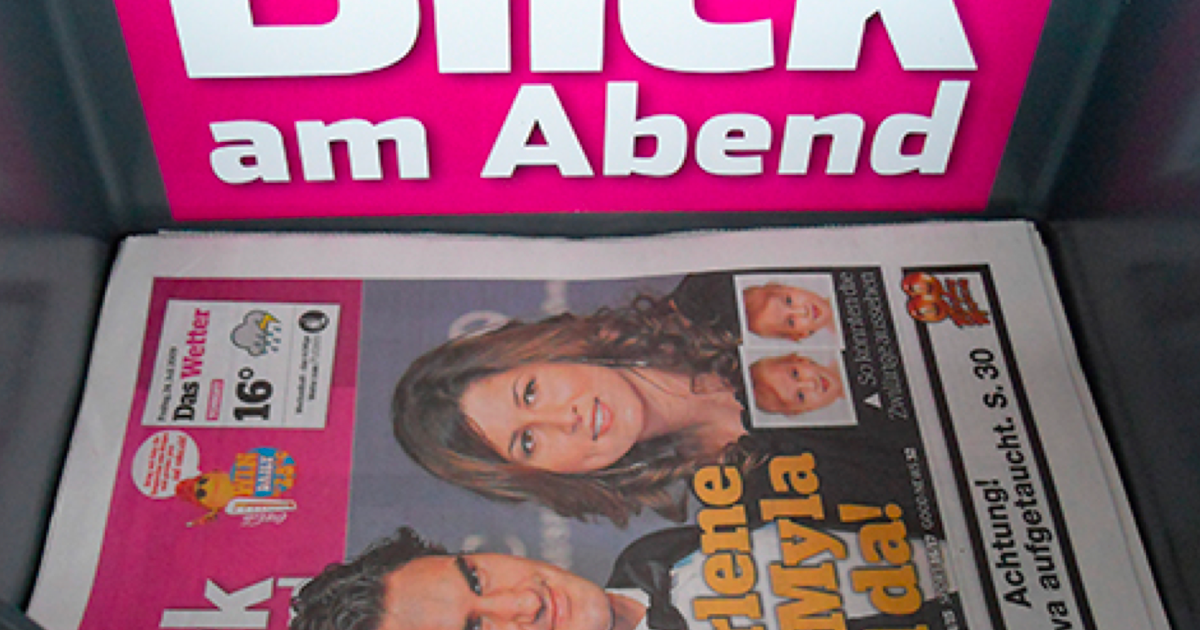
Free newspaper in celebration of the anniversary
Ringier marked its 175th year in business with celebrations in every country, including an exhibition and two major events in Switzerland – a party for employees and one for guests – at the KKL in Lucerne. On 1 June, the free commuter newspaper Blick am Abend was launched – the first and only evening newspaper in Switzerland. In November 2008, Ringier acquired the commercial online platform Geschenkidee.ch, which had been founded in 2002. In Vietnam, Ringier added the Nhat Viet Group to its portfolio; the portal brings together all the online activities of the country. CEO Martin Werfeli proudly reported that 8.5% of sales were generated through electronic media. The target: to raise that figure to 10% by the end of 2010.
2010
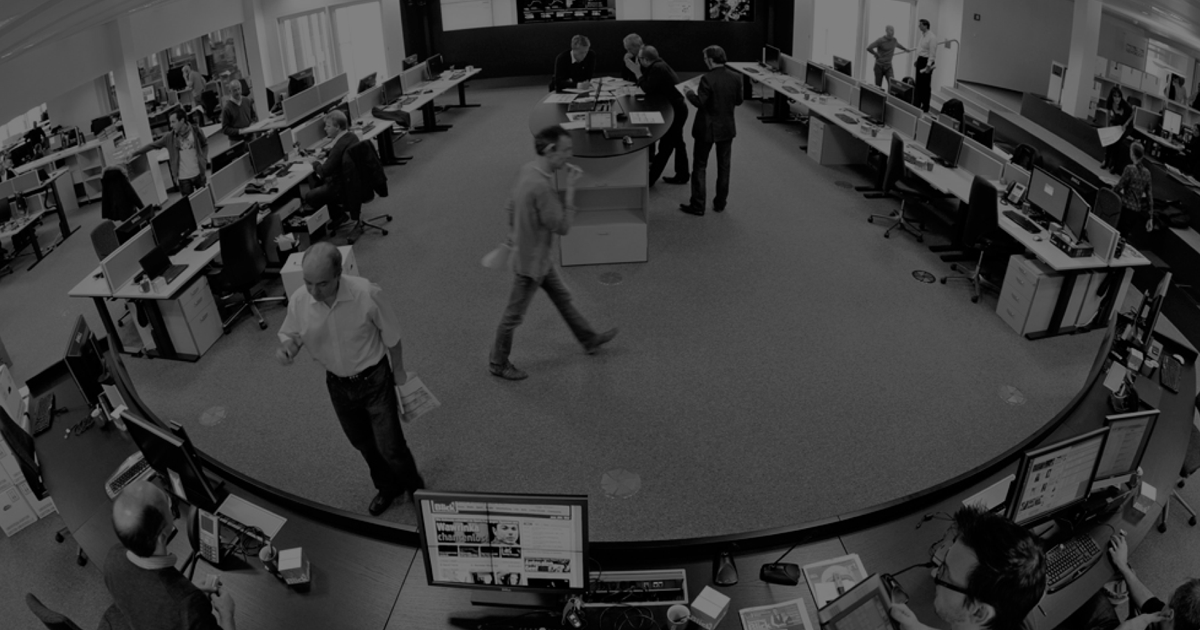
In 2010, Switzerland received its first newsroom
The editorial offices of Blick, SonntagsBlick, Blick am Abend and Blick.ch, together with Web-TV, were now combined in the largest and most modern newsroom in the country. Together with Axel Springer, Ringier formed the major joint venture Ringier Axel Springer Media AG and consolidated business activities in the Czech Republic, Serbia, Poland and Slovakia under its umbrella. Meanwhile in Vietnam, Ringier launched the new international version ELLE Vietnam jointly with the French media company Lagardère Active.
2011
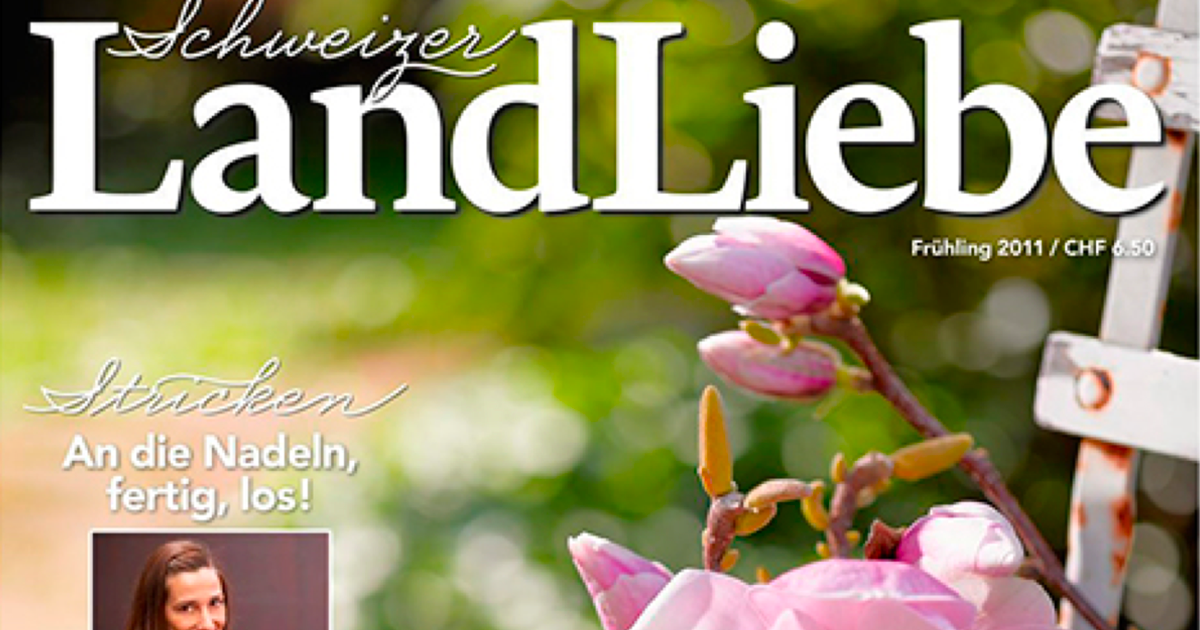
In 2011, Ringier rediscovered the countryside, expanded and grew
LandLiebe magazine was launched in 2011. The quarterly magazine was created to focus on the fascination and longing of a globalised society for the more down-to-earth and romantic lifestyle of the countryside. As the appeal of the concept began to grow, LandLiebe TV and LandLiebe Radio were added to the mix. Never before had a paid magazine achieved such success in Switzerland in such a short period of time. Based on the newsroom of the Blick Group in Zurich, newsrooms were introduced in Belgrade, Bucharest and Prague as well.
On 12 April, Ringier launched the collection, the world’s first single-themed tablet magazine. Subject of the first issue: ‘Prince William – the great hope of the British monarchy’. In the Digital area, Ringier acquired interests in the group-buying platform DeinDeal.ch. In the Entertainment sector, Ringier joined forces with the world’s largest sports marketing firm Infront Sports & Media AG under the name InfrontRingier – Sports & Entertainment Switzerland AG. In Romania, Ringier acquired Edipresse A.S. Romania, a joint venture between the Swiss publishing group Edipresse and the German media corporation Axel Springer.
2012

The ascent of Marc Walder
Marc Walder, previously CEO of Ringier Schweiz, succeeded Christian Unger to the post of CEO of Ringier AG on 5 April. Walder pushed the diversification of the company and accelerated the move towards digitalisation. Ringier’s digital activities were consolidated in the newly established unit Ringier Digital. The new unit included Scout24 Schweiz, Anibis, gate24 and baugate24, the IT service providers Xmedia and Geomatic, the e-commerce platforms Geschenkidee.ch and DeinDeal.ch, the IT service providers Previon and Ringier Studios, and Ringier’s recently launched activities in Africa.
Publishing continued to expand as well: the Blick group expanded its geographical reach with Blick am Abend, enlarging its distribution area by 12 cities, and Blick.ch becoming the first news portal in Switzerland to crack the 500 million-click threshold. In September, Ringier and Tamedia announced their joint acquisition of jobs.ch Holding AG, a Swiss online job platform that had since passed into the ownership of a US holding company. In November, the Competition Commission approved the deal – it was the largest internet deal to date in Switzerland. Qualipet Digital and Omnimedia were also added to the Ringier portfolio. In 2015, the two companies were sold for strategic reasons. Following approval by anti-trust authorities, in November Ringier Axel Springer Media AG acquired a 75% stake in the Polish online portal Onet.pl. The previous sole owner, TVN S.A., one of the largest TV broadcasters in Poland, retained a 25% stake. The acquisition of the largest Romanian online job portal eJobs.ro completed the year of major acquisitions.
Ringier had by this time invested CHF 1.4 billion in the transformation of its business and generated some 25% of total group earnings through digital products.
2013
The year digitalisation came of age
In 2013, Ringier employed 7,400 people in 14 countries, including four African countries. Sales reached about CHF 1 billion. The strategy of tapping new sources of revenue through diversification into the areas of digital business and entertainment began to bear fruit. In the Czech Republic, the activities of Ringier Axel Springer Media AG were sold, while in Nigeria the classified site ady.ng was launched. Ringier sold its stake in the AIO Group to the majority shareholder Deutsche Entertainment AG, thus relinquishing its interest in Good News, but retaining the successful Moon & Stars festival in Locarno. Blick am Abend celebrated its fifth anniversary with a special gift: blickamabend.ch went live at the end of 2013. A month later, blick.ch opened a branch office in Los Angeles to keep its online portals up-to-date 24 hours a day.
Toward the end of the year, Ringier was able to acquire the remaining shares in Scout24 that still belonged to Deutsche Telekom – an important step for the company. The transaction was concluded in January 2014.
2014
Majority stake in Le Temps acquired by Ringier
On 11 April, Ringier announced the acquisition of Tamedia’s 50% of the jointly held ER Publishing AG, which in turn held 92.5% of the Geneva broadsheet Le Temps. Le Temps thus became a part of the Ringier portfolio. In early 2014, Ringier acquired a majority interest in Expat-Dakar.com, Senegal’s biggest classified marketplace. The same year, Ringier launched the sports platform allsports.com.gh in Ghana and acquired 51% of the leading classified ads portal in Tanzania, ZoomTanzania.com. At the end of the year, Ghana successfully adopted the news concept from Nigeria’s pulse.ng with pulse.com.gh. Ringier was now active in five African countries. Six of the platforms have meanwhile become the market leaders in their respective countries. After the successful sale of their activities in the Czech Republic, the portfolios of Ringier and Axel Springer in Hungary were brought into the joint venture in October. In Eastern Europe, only the activities in Romania were still not part of the joint venture. In July 2014, a partner from the US joined forces with Ringier: KKR, a global investment firm, planned a long-term collaboration with Ringier in the classifieds and marketing fields. KKR acquired 49% stakes in each of the Ringier Digital AG subsidiaries – Scout24 Schweiz AG and Omnimedia AG. In December, Ringier announced that a joint venture with Axel Springer Schweiz was in the works: the Ringier Axel Springer Medien Schweiz, a merger of the respective magazine portfolios.
2015
New structures and companies
Ringier Digital AG reorganises its marketing activities: after the national marketing business Omnimedia AG, which for years had been operated exclusively for Scout24 Schweiz, was fully integrated into Scout24 Schweiz AG at the beginning of the year, Cleoo Limited Corp acquired the remaining SME marketing business from Omnimedia as of 1 July 2015. In the digital area, the group founded Ringier Digital Ventures, a company dedicated to seeking out and supporting innovative digital start-ups. The online real estate platform MyProperty.ph in the Philippines was sold for strategic reasons. In China, Ringier sold its trade magazines to long-time partner Mike Hay.
2016

Management buy-out of Cicero and Monopol in Germany
The two premium titles Cicero and Monopol have changed hands: Cicero editor-in-chief Christoph Schwennicke and deputy editor-in-chief Alexander Marguier took over the two high-end products on 1 May 2016 as part of a management buy-out.
Launch of new joint venture Ringier Axel Springer Schweiz AG
Ringier Axel Springer Schweiz AG, the Swiss joint venture with Axel Springer, began operations on 1 January 2016. The new media company's remit includes both companies' entire magazine portfolios in Switzerland as well as the Le Temps and Handelszeitung newspapers. Ringier Axel Springer Schweiz produces 500 print editions each year across approximately 30 different products. It employs 600 staff and has its head office in Zurich.
Ringier Africa and One Africa Media found African classifieds joint venture
Ringier Africa and One Africa Media (OAM) merged their online marketplaces to create and expand the largest classifieds group in Africa. The joint venture, known as Ringier One Africa Media (ROAM), constitutes Africa's leading classified ads portal.
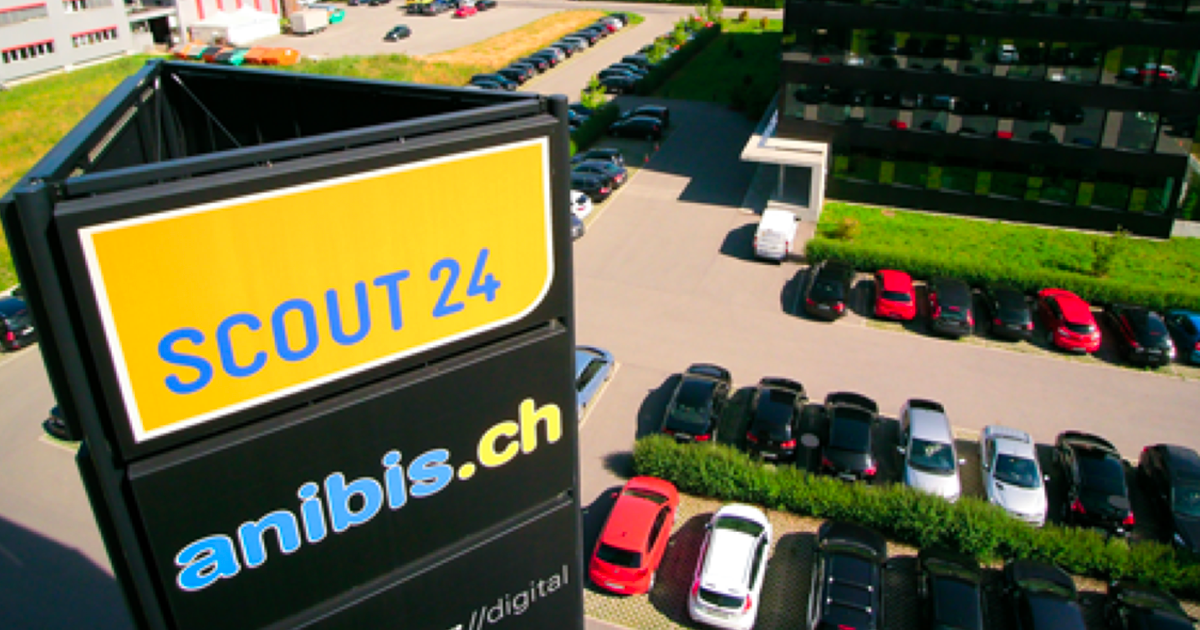
Mobiliar purchases shares in Scout24 Schweiz AG from KKR
Mobiliar, the oldest private insurance company in Switzerland, purchased 50% of the shares in Scout24 Schweiz AG from KKR and other investors in spring 2016. Scout24 is the leading network of online marketplaces for vehicles, property and classified ads. KKR, one of the world's leading investors, acquired a stake in Scout24 Schweiz AG in August 2014. The successful partnership has led to significantly accelerated growth, greatly exceeding stakeholders' expectations. Ringier will continue to consolidate and control the company.

Admeira – a new perspective for Switzerland
On 4 April 2016, the joint marketing organisation from Ringier, Swisscom and SRG began operations under the name Admeira. The project was first launched on 17 August 2015, and Marc Walder was among its initiators. The venture’s objective of keeping more digital advertising funds in Switzerland was met with criticism from competitors, which led to Ringier's immediate withdrawal from the Swiss Media Association on 20 August 2015, just three days after the launch was announced.
2017
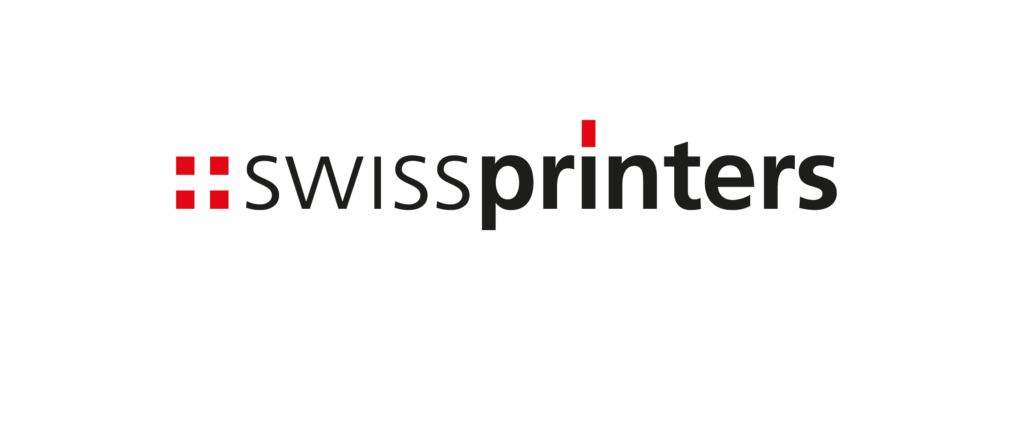
Ringier repositions its printing business
In response to the changing Swiss print market environment, Ringier repositioned its printing business. All printing activities now take place at Swissprinters AG in Zofingen. Newspaper printing at the Adligenswil site ceased at the end of 2018.

Ringier redesigns its Asian portfolio
In November 2017, Ringier China Co. Ltd., the Chinese subsidiary of Ringier AG, sold its publishing programme to Ocean Strategies Advertising Ltd. Following many successful years on the Chinese market, Ringier decided to focus increasingly on Vietnam and Myanmar in order to expand its business and portfolio in both areas.
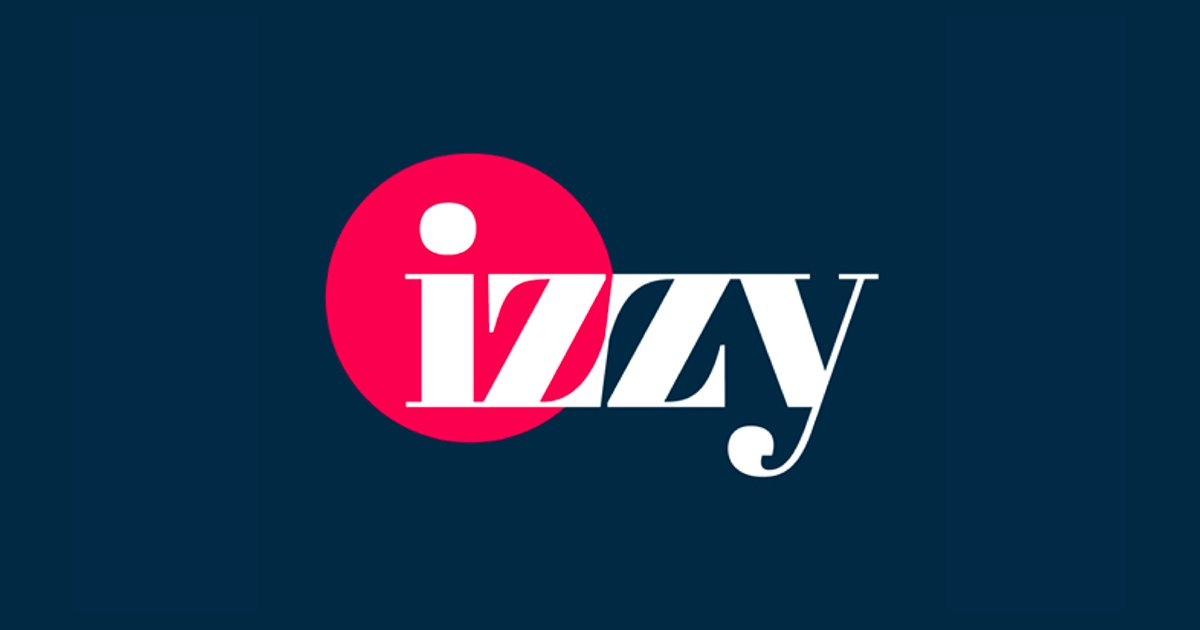
Ringier launches its social media magazine, izzy
Izzy is Ringier's new media brand in Switzerland. It contains a mixture of intelligent entertainment and topical social issues for a young, urban audience that primarily consumes content directly through social media.
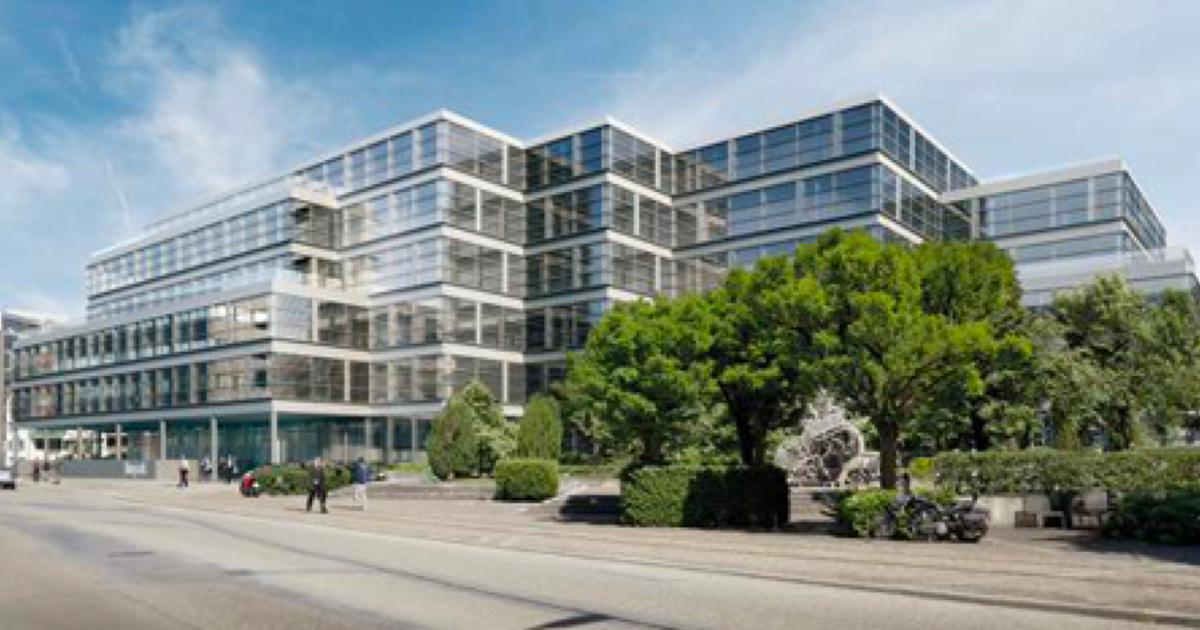
Ringier Axel Springer Schweiz moves to Zurich West
In April, the Ringier Axel Springer Schweiz team moved to its new offices at the Medienpark in Zurich-Altstetten.
2018
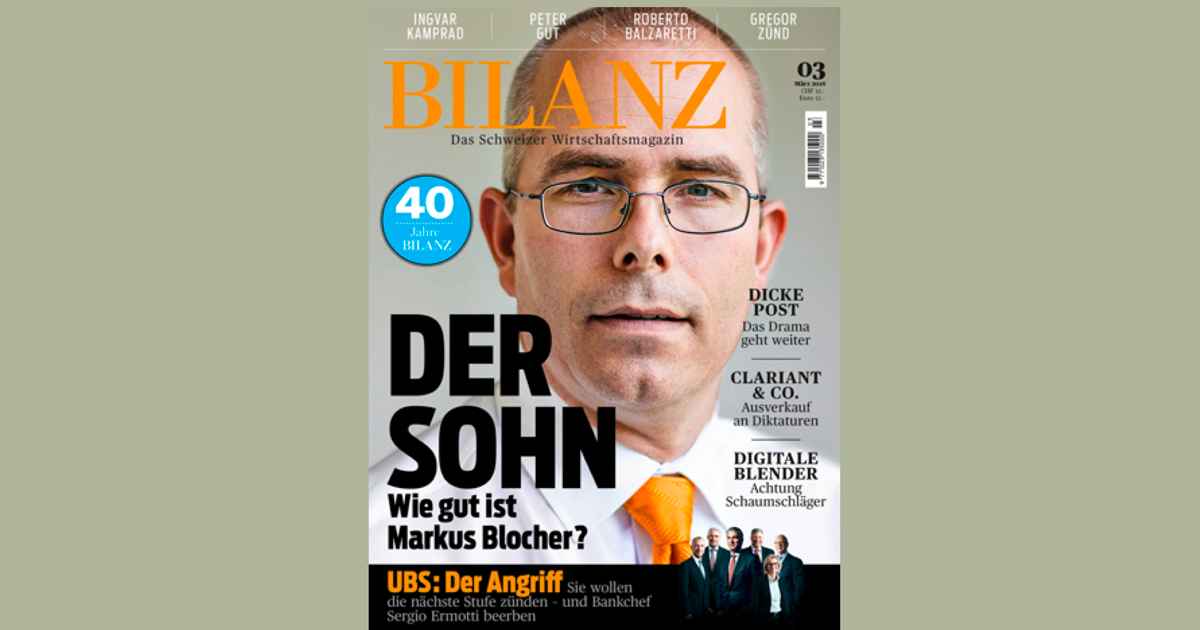
Bilanz turns 40
The leading Swiss business magazine Bilanz celebrated its 40th anniversary in February 2018.

Ringier AG lays foundations for the future
At the 2018 management conference, Ringier AG announced the sale of 10 per cent of its company shares to Marc Walder, CEO of Ringier AG. As part of generation planning, it was also announced that Robin Lingg would lead the sixth generation of family shareholders in the medium term.

Ringier AG wins at the 2018 Global BIGGIES Awards
In March 2018, Ringier received the Best of Show BIGGIES-Award in New York for its project ‘Using advanced Artificial Intelligence to generate reader revenue and boost user engagement’.
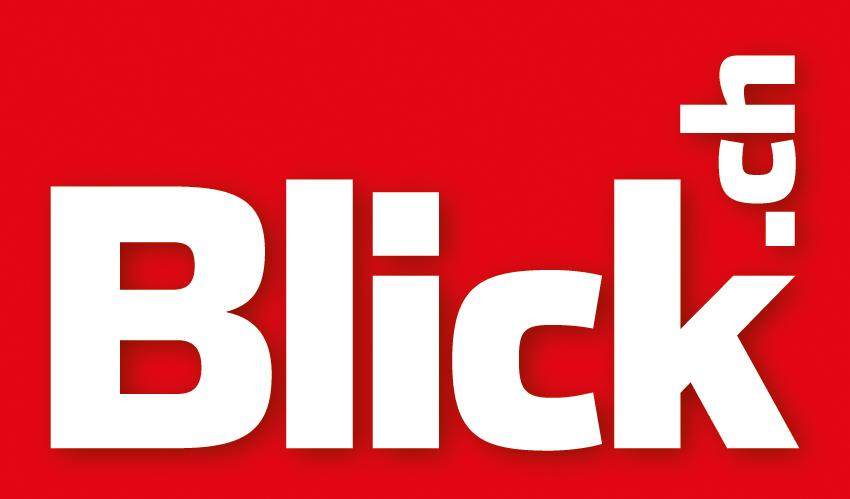
Blick.ch relaunches its online presence
Following a two-week open beta phase, the new Blick.ch platform went live, featuring brand new technology, a tidier layout and shorter loading times. The relaunch laid the foundation for exciting new formats and expansions of Blick.ch.
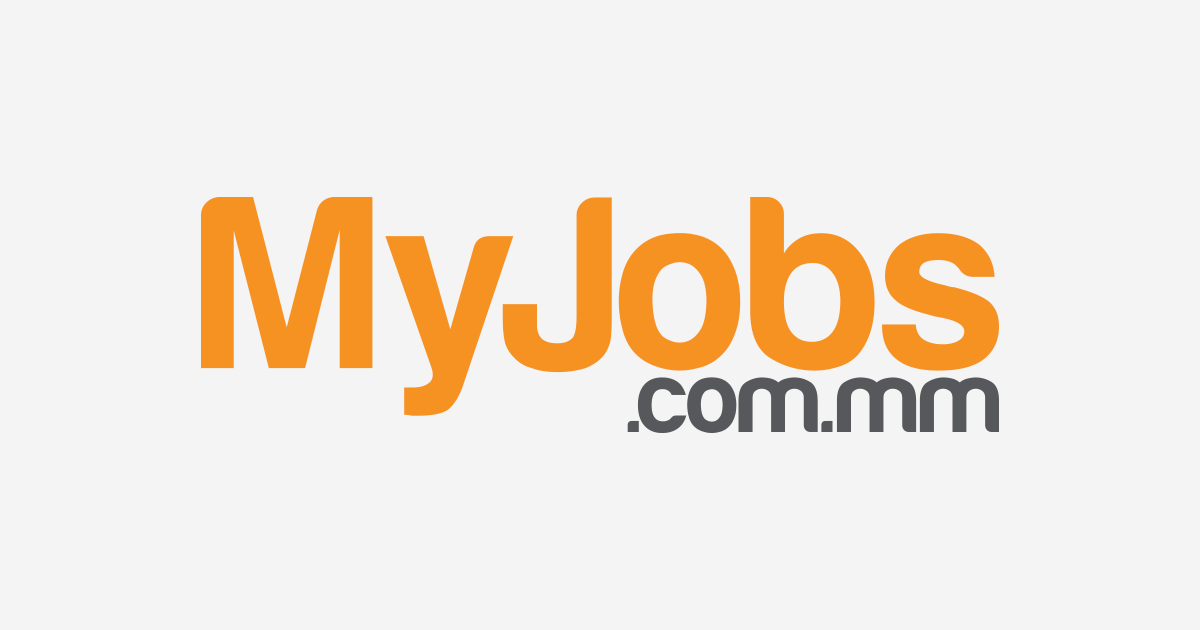
Ringier AG acquires MyJobs.com.mm
Together with its local partner Matrix Co. Ltd., Ringier AG acquired the online job platform MyJobs.com.mm. The acquisition strengthened Ringier's digital marketplace strategy as an important strategic pillar of the Group and reinforced its intention of assuming market leadership in Myanmar’s digital business.
RINGIER SPORTAL S.R.L. acquires the Romanian sports magazine Gazeta Sporturilor
The joint venture between Ringier Romania and the Bulgarian sports media group RINGIER SPORTAL S.R.L. acquired the Romanian sports magazine Gazeta Sporturilor. The contract includes both the digital platform GSP.ro and the print version of Gazeta. This transaction made Ringier Romania the uncontested market leader in digital media in Romania.
2019
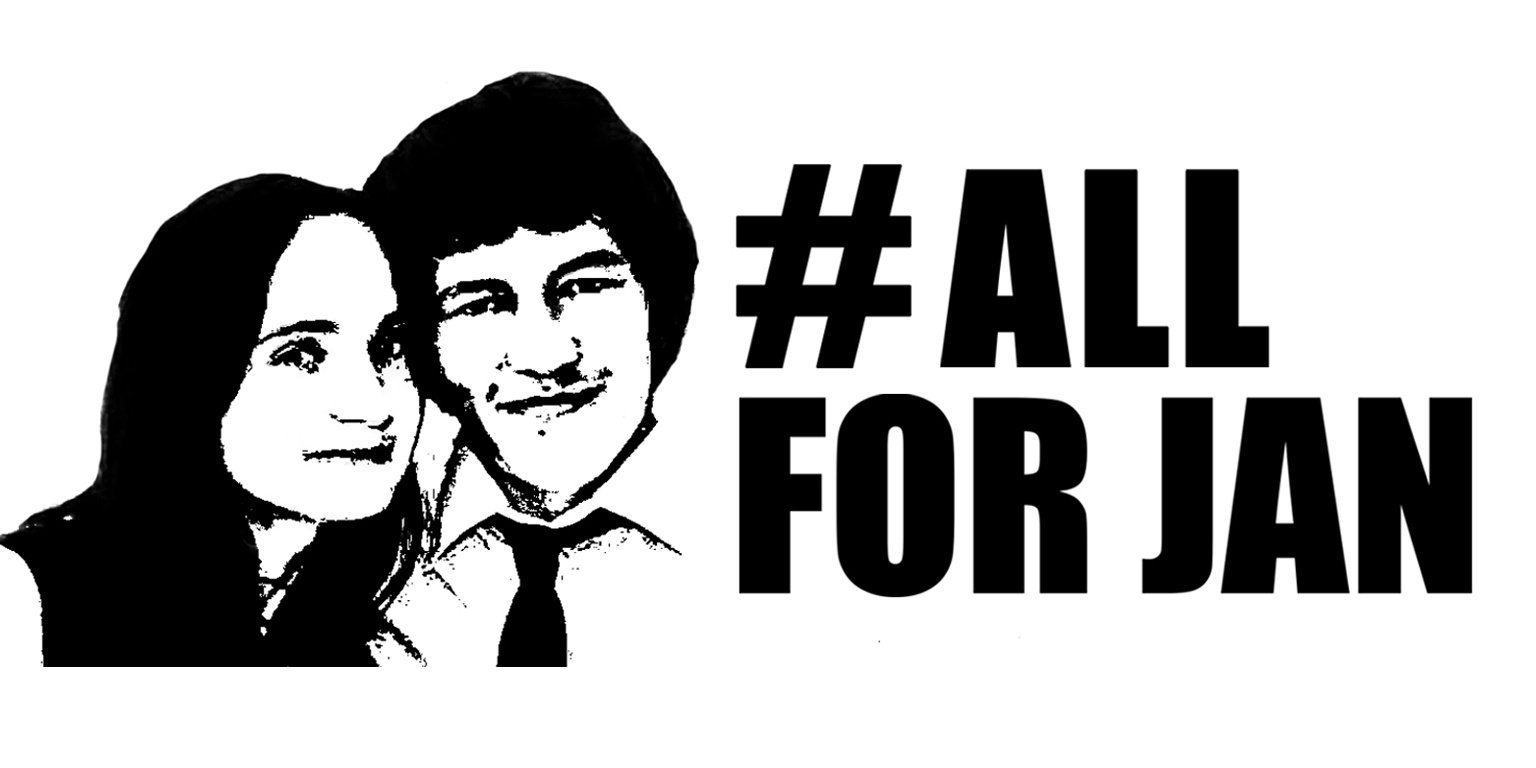
Ringier Axel Springer organises the Press Freedom Conference in Bratislava
On 5 March 2019, Ringier Axel Springer, the European Magazine Media Association (EMMA) and the European Newspaper Publishers’ Association (ENPA) jointly hosted the Press Freedom Conference in Bratislava. It took place one year after the murders of the journalists Ján Kuciak and Martina Kušnírová.
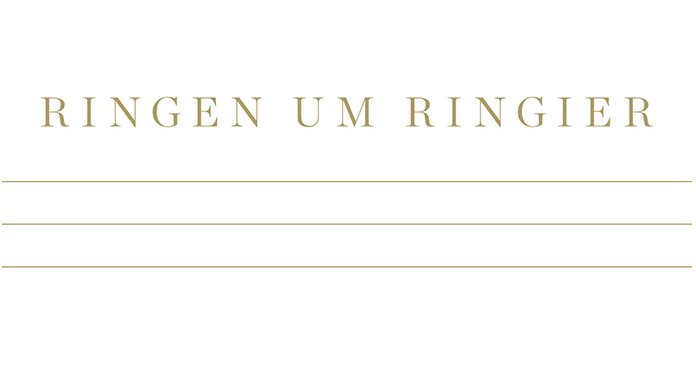
"Struggling for Ringier. On the art of digitisation in a Swiss media group"
The book by the Swiss journalist, author and publicist René Lüchinger traces the transformation of Ringier AG for the first time across 320 pages. Ringen um Ringier, published by Steidl, is illustrated with artworks from the Ringier collection.
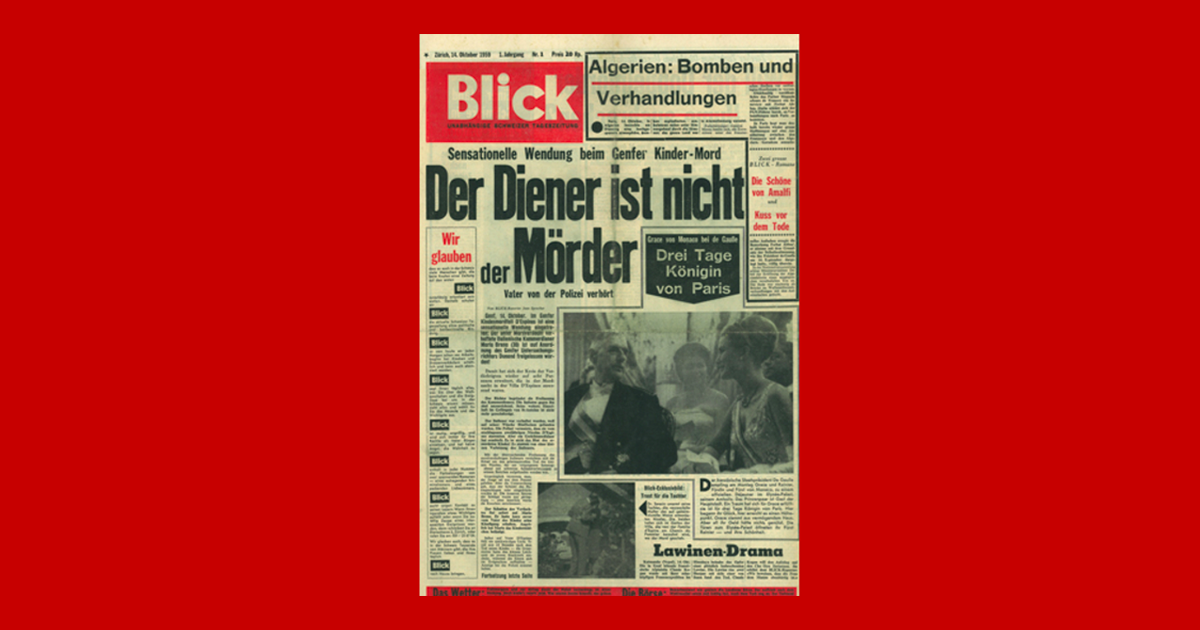
BLICK and SonntagsBlick enter their anniversary year
60 years ago, the first issue of BLICK was published. The first issue of SonntagsBlick followed a decade later, 50 years ago. The Blick Group celebrated both anniversaries with its readers through various campaigns and interesting reviews of the company’s history.